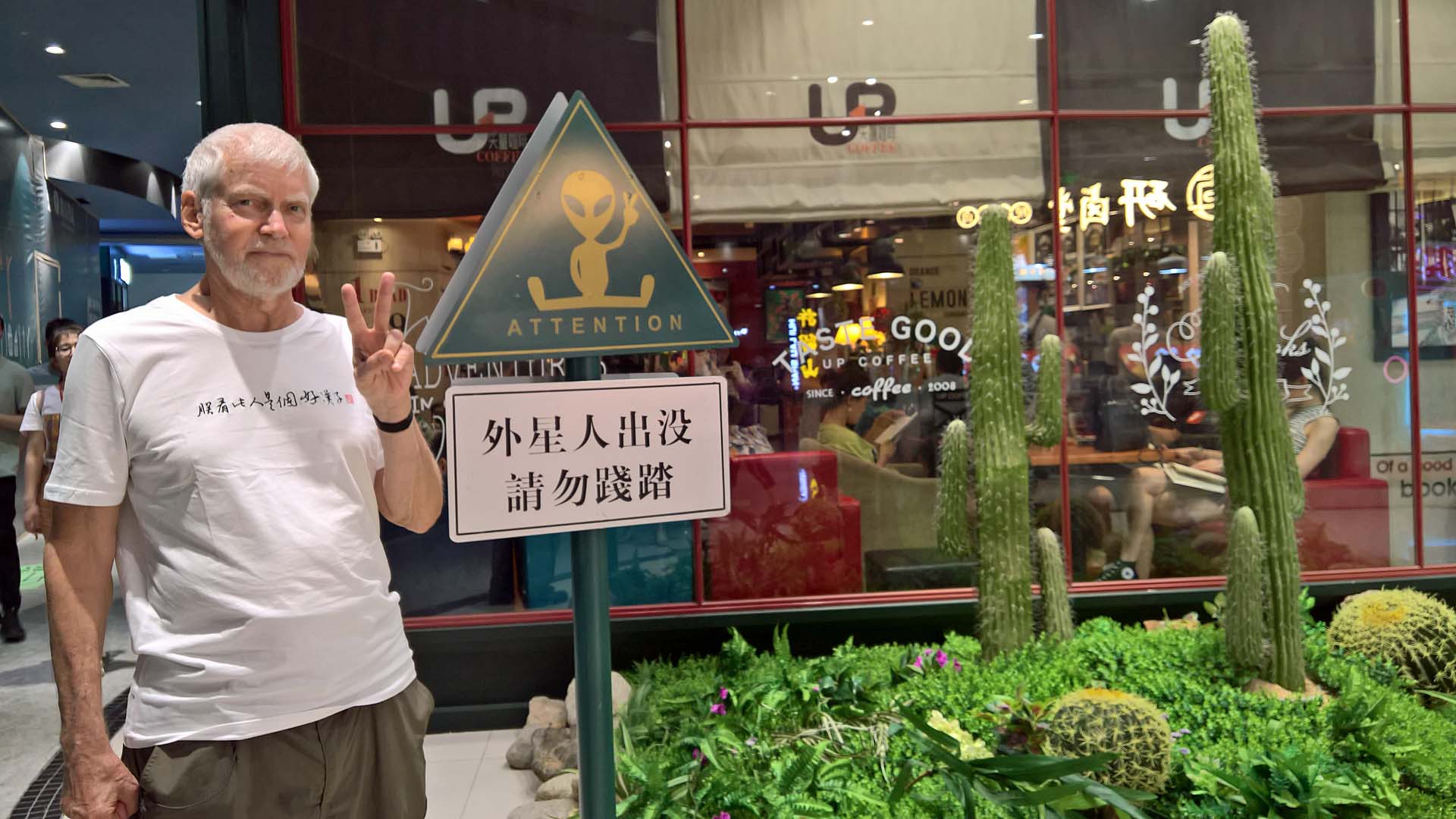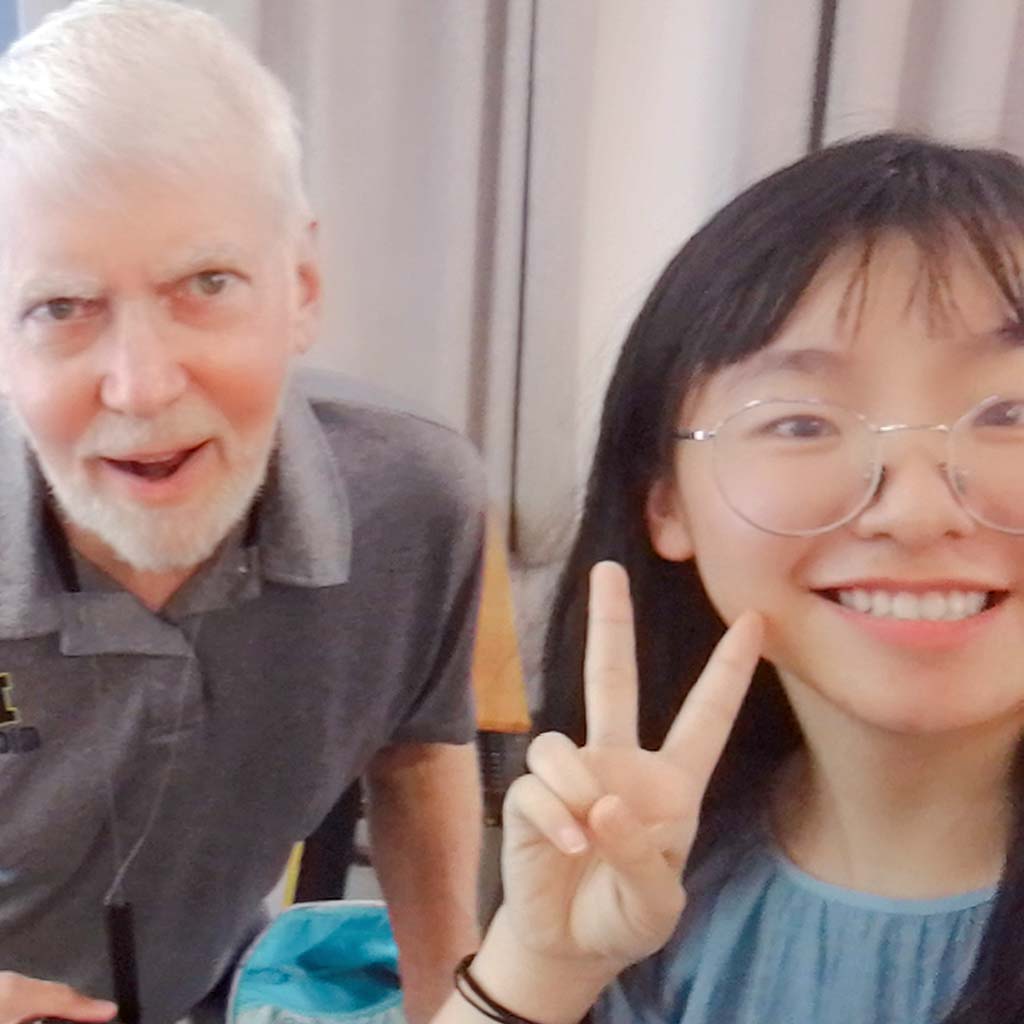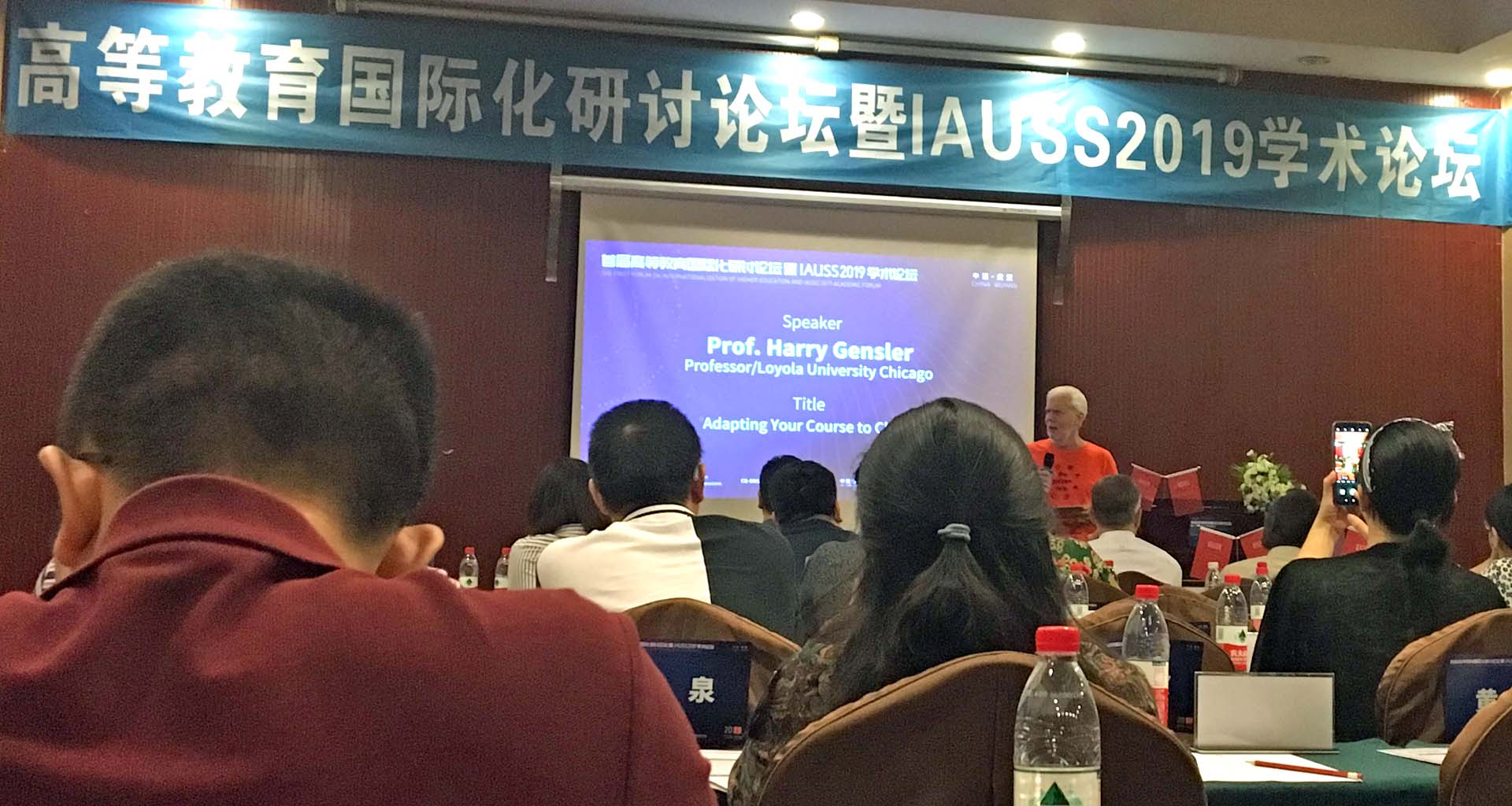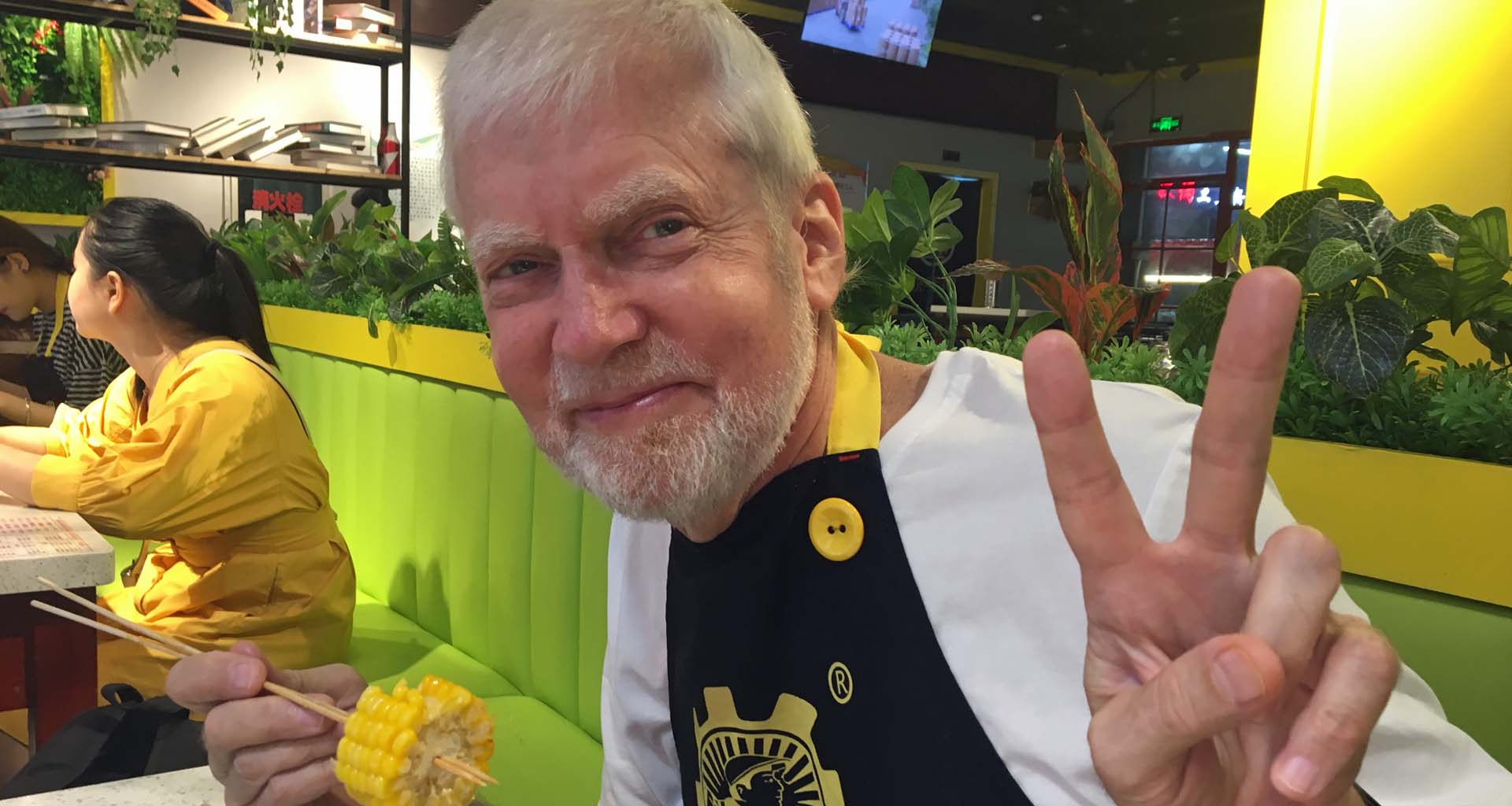![]() China 2019
China 2019
In English 英文 -- In Chinese 中文
![]()
These are pictures of my summer teaching in China during June-July 2019, divided into four sections: week 1, week 2, weeks 3 and 4, and my talk (about adapting my course to China).
First-week report
Good morning from China, which I really love. I just finished the first week of my priceless experience of teaching my Ethics course at one of its top universities, the University of Wuhan.
Hannah picking me up at the Wuhan airportHannah and Hao picked me up from the Wuhan airport. The people here are so nice and so helpful - and so cute. They are very good to me, spoiling me with kindness, treating me like a celebrity. Many things are different, like the writing (so difficult), chopsticks (which I'm mastering), and the food (very creative and delicious); but humanity in some ways is the same all over the world.
Main gate at the University of WuhanWuhan plausibly claims to have China's most beautiful campus. It's really delightful to walk through the big campus (60,000 students). It reminds me of a southern campus in the US: beautiful trees, heavy vegetation, hilly, warm, humid. But add Chinese elements: huge numbers of people, many carrying umbrellas (to shade them from the sun) or pollution masks, scooters everywhere, and many cars and bicycles. There is much to explore here.
Four of my students
(The Chinese love to wear shirts with English writing.)Here you see Leila (just joined the class), Olivia (going into law), Ferri (full of ideas), and April (who is so eager to learn). I love the students here, and I admire that they are taking this class IN ENGLISH (which can be difficult for them). I just read their second batch of papers, and I'm impressed. Wuhan is full of college students, and it claims to have more of them than any other city of the world.
TAs Annie and JoyceHere are my two wonderful teaching assistants, who help me run the class. Annie just finished an M.A. and is very close to finishing her training as a medical doctor, specializing in kidney problems. Joyce has done several years of graduate work in computers, and is now finishing an article to be published. Getting to know these two is very special for me.
View from my hotel windowI'm on the 8th floor of the very nice Junyi Dynasty Hotel; it faces a busy road. Wuhan has three times the population of Chicago, is full of tall buildings and expressways, and in many ways is more modern than Chicago. China over the last few decades has transformed itself from a poor, backward country to the second biggest economy of the world (and, with their growth rate, they will eventually surpass the US). I'm reading a long book on Deng Xiaoping, who was the major force behind this transformation; he wisely tried to combine the best ideas from East and West, regardless of ideology - and I often use him as an example in class (which otherwise would be too heavy with American examples).
Traces of America are everywhere: on the t-shirts (it's trendy to wear things with cute English sayings), in the bi-lingual road signs and subway announcements, in the KFCs and Starbucks that are all over, in how every student studies English from early years, in how they pay much to bring American professors like me to come here and teach, and so on. They like us a lot, and I like them. I see China and the US as sister countries; we need to know each better and get along better. In many ways, China is like America, but on a different scale: BIGGER.
Holy Family ChurchYesterday after class, I explored the ultra-modern subway system, using a metro card that I was given. I wanted to see if I could get to Holy Family Catholic Church. It took about an hour, was a little tricky to find, and led me through some interesting backstreets; while I was the only non-Chinese around during my journey, I felt completely safe. I joined the small weekday mass group just before the homily. While I understood not a single word, I was very moved by being with these people who were praising and worshipping God in a different language (and they sang a Chinese version of Amazing Grace during communion time). I'll be back for their Sunday 10:30 mass in English.
My health is good, and I feel strong. And so my amazing month-long Chinese summer experience is going very well.
Second-week report
I'm continuing to enjoy my month in China. My students are great - and they so appreciate my teaching. I sent this note with individual e-mail grade reports after their midterm exam:
You ALL did really well on the midterm exam; amazingly, no one got less than an A. If you were at Loyola of Chicago (where I teach, and a pretty good school - in the top quarter of large research universities in the US), you'd ALL easily be in the top third of my class. You're doing well in four important areas: (1) the ability to understand and explain complex ideas, (2) the ability to apply ethical thinking to an area of your choice, (3) the ability to point out problems in a theory that's presented to "sound very good," and (4) study habits. I'd judge that ALL of you are good enough to do graduate studies abroad in an English-speaking university (if you'd want to - China has lots of good graduate programs too). Keep up the good work.I try to speak slowly, avoid saying things that they wouldn't understand, and relate the material to China if I can.
Last weekend I visited a local tourist sight, the Yellow Crane Tower, with my wonderful teaching assistant Annie. Here are some pictures:
The West Gate
(I love those curly roofs)
The Yellow Crane Tower
Tile artwork of the yellow crane
Great view from the top
Taking lots of pictures
View from the top
(many skyscrapers - and many more being built)
Umbrella against the sun
(I feel almost Chinese when I use an umbrella in the sun)
Mighty Yue FeiThen this weekend I visited another local tourist sight, the Baotong Buddhist Temple, with my wonderful teaching assistant Joyce and her friend Faye. Here are some pictures:
Baotong Buddhist Temple with Faye and Joyce
(we saw many Buddhists worshipping)
Mural
Statues
(there are many)
Climbing a tower
(A real workout - those Buddhists monks must be in shape)
The old and the new
Many trailsThis Sunday I went to mass at the very nice Catholic cathedral of Wuhan, which was just on the other side of the Yangtze River:
St Josephs CathedralEven though the church was only a few blocks from the Jianghan Road Metro Station, it took me about 40 minutes each way, because I kept walking in circles. Getting lost walking around Wuhan is becoming common, because my map and GPS aren't very good, China has some bilingual road signs but not enough, and I have a horrible sense of direction. But I've decided to be more positive about getting lost, and see it as positive because (1) the random walking gives me a deeper experience of China (which is an incredible mix of the traditional and of ultra-modern versions of US skyscrapers and suburbia), and (2) it's good exercise. The worst part of my China experience is that it's half over.
Weeks three and four
Annie spent a weekend at the tropical island of Hainan, supposedly attending a medical conference on nephrology (her medical speciality), but more likely doing a photo shoot for a fashion magazine. Dr. Annie brought me back some 100% natural coconut powder from the island; this is wonderful, since the stuff is very healthy and I use a lot of it back home.
Annie in Hainan
Coconut powderOne of my students, Bowen, participated in a dragon-boat race against a neighboring school. We won the championship. Go Wuhan!
Dragon boat race
Dragon boat team
Bowen with dragon boat trophyThese are from a visit to the Hubei Museum. Here so many little kids stared at me in amazement as if they'd never seen a Caucasian before; or maybe they thought that I was Santa Clause after a trimming of beard.
Hubei Museum
Musical instrument with huge bells
Many faces
One more face
I shouldn't have used the flash
Blinding Annie with the flash
This is actually Mexican
Este es Mejicano
Annie among the primitivesSome of the IAUSS people took us out to a delicious hot pot meal. IAUSS is the organization that sponsored our coming to China to teach; thank you, thank you! The first picture has Osaak (who teaches in Ohio), me, and Victor (who works for IAUSS). The next two pictures feature Kellie (who directed and cared for us) and Sue (who also helped out much) - both with IAUSS. The people with IAUSS were great!
A hot-pot meal
Kellie and Harry after a wine-tasting party
(I asked Kellie how many elegant dresses
she had, and she replied "Millions!")
Sue and her son HowHow
(Sue really helped me during a medical emergency.)Joyce and Annie and I did various things one Sunday. These two pictures are from the Customs Museum; the British at one time created a colony over Wuhan where they set themselves over the Chinese people and collected taxes for items shipped over the Yangtze River (boo on their actions!).
At the Customs Museum
Wuhan is at the meeting of the Yangtze and Han RiversIn the next three, we're taking the Metro (subway, or "el" in Chicago slang). In some ways, China is much more modern than America, as in their subway system and in how they pay for things so easily using their cell phones. The Chinese also have the cute habit of giving the peace sign when you take their picture; after a while, I was even doing it.
Subway
Subway
Subway
How Wuhan's metro system has expanded since 2005
- and there's much more to comeAnd then I had my second hot pot meal in China. Oh, how I love hot pot!
Hot pot
Hot pot
Hot potI loved the Chinese food. Typical American Chinese Restaurants are very similar; you have eggs rolls, egg drop soup, and fortune cookies - none of which did I have in China. Imagine a country where you have restaurants that serve "American Food" - and they all serve pretty much the same food. Chinese restaurants in China (including the university ones) are very different from each other, with many different types of food. A typical basic meal that I like for lunch would have a big bowl with rice or noodles on the bottom and various things of your choice on top (many kinds of meat or vegetables or mixtures - pick two or three from about twenty choices), eaten with chopsticks. But many, many other options are possible. I have congee as part of my breakfast here, a delicious rice-based porridge with bits of chicken and sea weed (but it tastes good). The Chinese are very creative about food, much more than we are.
After a month in China, my cholesterol numbers were enormously improved: my bad-cholesterol LDL was 67 (while previously it had ranged from 162 to 98) and my total cholesterol was 144 (while previously it had ranged from 262 to 200). A typical American dinner has a large chunk of meat, a high-carbohydrate item (like potatoes), and a sugary desert. The large amount of meat that we eat isn't good for our health or for the planet (since it uses lots of resources – a pound of beef takes 6000 gallons of water). The Chinese way is better: less meat (but enough for the protein that we need), mixed up with other things (like sauce and vegetables – so you get a lot of meat taste with less actual meat), carbohydrates mixed with other things (which lower the glycemic index and the insulin spike), much more vegetables (and hence fiber), and far less desert. One of the themes of my ethics course is how different cultures need to learn from each other; and America can learn a lot about healthy and environmentally responsible eating from China and other cultures.
I especially loved the HOT POT restaurants, which have a big pot, divided into various sections (some of which are more spicy), of boiling water (or soups) in the middle of the table, into which you put various things (thinly cut meat, tofu, vegetables, salad pieces, small biscuits, etc.) using your chopsticks - and later take them out and eat them when they're cooked; this is really delicious and fun! I told my Chinese students that if they want to make a fortune then they should come to America and set up hot pot restaurants.
After our hot-pot meal, we crossed the Yangtze River on a boat. The big building in the next picture is the Greenland Center - which will be the second tallest building in China when it's completed; it's much taller than the Sears (Willis) Tower in Chicago, which for many years was the tallest building in the world.
Yangtze River
Yangtze River
Yangtze River
Yangtze River
Yangtze River
Yangtze River
Yangtze RiverThe next 6 pictures are from a picture book that IAUSS did.
The 11 teachers from America:
Nicko, Harry, Ousmane, Osaak, Steve,
Lily, David, Peter, Carlton, and West
(Carlos is missing)
More people
(Carlos is fifth from the right in the back row)
Even more people
Harry lecturing
(morning periods were lectures)
Harry discussing
(afternoon periods were discussions)
Joyce as cover girl, with a beautiful smile and elegant dress
(this was the sole picture on the book's back cover)On our last day together, Joyce and Annie and I did hot pot again (why not?) and then toured a shopping mall (much like in suburban America, and so many of the stores are American).
All bibbed up for another hot pot meal
Hot potting
Hot potting
Hot potting
Hot potting
Ice jelly (perfect if your mouth is too spicy)
At the shopping mall
I'll end this section with some miscellaneous pictures and ideas.
Common China outlet
This is a 230-volt electrical outlet common at my hotel and often in other places throughout China. The bottom part can take a simple adapter to fit an American grounded 3-prong plug; the voltage remains 230, but most electronics works fine at either 110 or 230 volts. Often the bottom part is already filled (maybe with a lamp), but the top part is free. The top part directly fits an unpolarized 2-prong American plug, used by most electronics (again, 230 volts is usually fine for these). If you want to use the top part for more than one 2-prong device (polarized or unpolarized), then combine this or this (to change from polarized to unpolarized) with this or this (to supply power to three devices instead of one).
If you come in the summer to Wuhan, which is very hot, don't bother to bring long sleeve shirts, sweaters, or sport coats; I brought these but didn't use them much. Get a short-sleeve Guayabera if you want something dressy but cool.
And here's one of my students - a very bright gal who is majoring in political science:
With the future president of China
President April Rao will bring to China and the planet a new era of peace, cooperation, clarity, compassion, and fairness - based on the golden rule:
Treat others only as you consent to
being treated in the same situation.
KITA - four elements for using the golden rule wisely Know: "How would my action affect others?"
Imagine: "What would it be like to have this done to
me in the same situation?"
Test for consistency: "Am I willing that if I were in the
same situation then this be done to me?"
Act toward others only as you're willing to be treated
in the same situation.
The IAUSS generously gave us many gifts, including a beautiful China doll. While I don't play with dolls, I got great pleasure by giving the doll to Raelynn, a six-year-old relative who really loved it and appreciated it.
I gave this to Raelynn during a family camping trip
that I went on after I returned from China.
My talk
After our classes were done, all of the
American professors in the IAUSS program gave
a talk on their experiences. Here is my talk,
entitled "Adapting your course to China."
Adapting your course to China
When I brought my ethics course to China, I modified it in various ways.
On the first day, I wore, from my clothing line, a Confucian golden rule shirt. The golden rule, "Treat others as you want to be treated," is endorsed by all of the world's great religions and is prominent in my course. Confucius gave one of the earliest formulations, which he used to sum up his teaching about how to live, and my shirt has this in Chinese. I tell my students that my course will be about Western ethics, but also about global ethics. Actually, I'm not wearing this Confucian shirt right now, because Victor (of IAUSS) liked the shirt so much that I gave it to him; I'm instead wearing another golden rule shirt from my clothing line.
The first view that my course considers is cultural relativism, which holds that good is what is socially approved in your culture. This view was endorsed by Protagoras in ancient Greece - and by Teng Shih in ancient China. When I talk about a dispute in Western ethics, I try (often successfully) to find a similar dispute in China. I use Martin Luther King as an example of someone who went against cultural relativism, opposing racist segregation even though it was socially approved; thus he pushed America to change for the better. Here I add the example of Deng Xiaoping, who opposed widely approved Chinese thinking about how to run the economy; he instead tried to incorporate the best ideas from East and West - and this led to China's huge transformation over the last few decades. I've learned as much as I can about Confucius and about Deng Xiaoping, and I often use them as examples in my course. For an example of how the West can learn from the East, I appeal to my own life and how my illnesses were helped by a medical herb from the East - ginseng - which has been used for many centuries in China and has strong medical data in its favor, even though my Western doctors ignore it.
I often apply ethical views to racism. I asked my students, "Were the Chinese ever victims of racism?" Yes, European powers, thinking that they had a right to conquer and control other races, colonized parts of China in the nineteenth century; Wuhan itself was once a colony of England. And Chinese people living in Western countries were often treated badly; Deng Xiaoping experienced this when he was a young foreign student in France.
The third week of my course is about the golden rule: how to formulate it to avoid objections, how to use it in reasoning about moral issues, and how it fits into ethical theory, world religions, and science (especially evolution). I connect often with China - with Confucius and other Chinese thinkers, and with traditional Chinese stories that illustrate the golden rule. I introduce the golden rule using a Western adaptation of an ancient Buddhist story. And I give each student a nice poster about the golden rule in the religions in the world, and I emphasize three that traditionally are important in China: Buddhism, Confucianism, and Daoism.
I was worried about the last topic that I teach in the course, namely civil rights, because the right to free speech is so delicate a topic in China. So I covered negative rights like free speech very quickly, not mentioning China, and saying that they aren't very controversial in America. I spent more time on positive rights, which deal with economic issues like the distribution of wealth and health care. We studied two contrasting views here, those of Rawls and Nozick, roughly representing Democrats and Republicans in America. America has often prided itself on having a strong middle class, having relatively few who are poor or very rich, with the poor being able to work to raise their standard of living. But the middle class has suffered much the last few years. Statistics show that the rich are getting richer and the poor are getting poorer; what to do about this is a major issue in the democratic primaries. So America has an issue about social inequalities; but so does China. The huge economic growth of the last few years has led to a big gap between rich and poor, and inequalities in China are even greater than those in America. I asked my students whether China is trying to spread the wealth around more; and they mentioned various ways that China is trying to do this. So both America and China have a problem with social inequalities, and I'd hope that both countries can learn from each other on this.
I often apply ethical views to global warming. Here I tell the students that their country (China) and my country (America) are the two major players. We are the two great economic superpowers, and the two great polluters; what we do will have a major impact on the future of the planet. China, after a slow start, is making much progress in this area; America, after a fair start, is moving backwards. We need to work together on this. We need a big war - not against each other, but against the forces that are destroying the planet. If China and America can work together on this, then other countries may fall in line and there's great hope for the future of the planet.
Next year, I'd like to teach logic in Wuhan; by that time, the third edition of a logic book that I wrote will have been translated into Chinese. But, while ethics is easy to adapt in special ways to China and Chinese students, logic may be more difficult to adapt. I'll have to think hard about this.
Bye bye,
and thanks for the great experience!

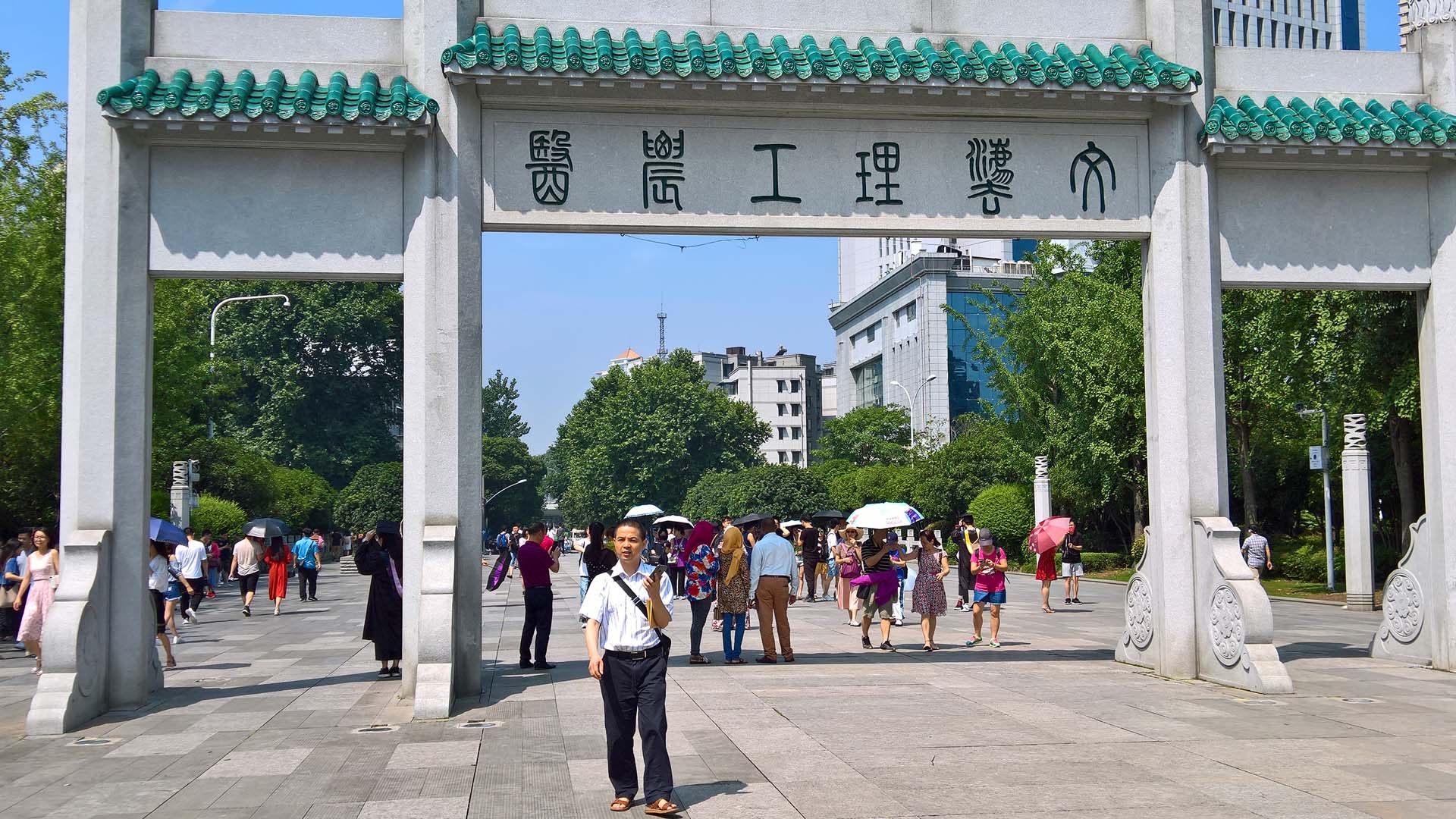
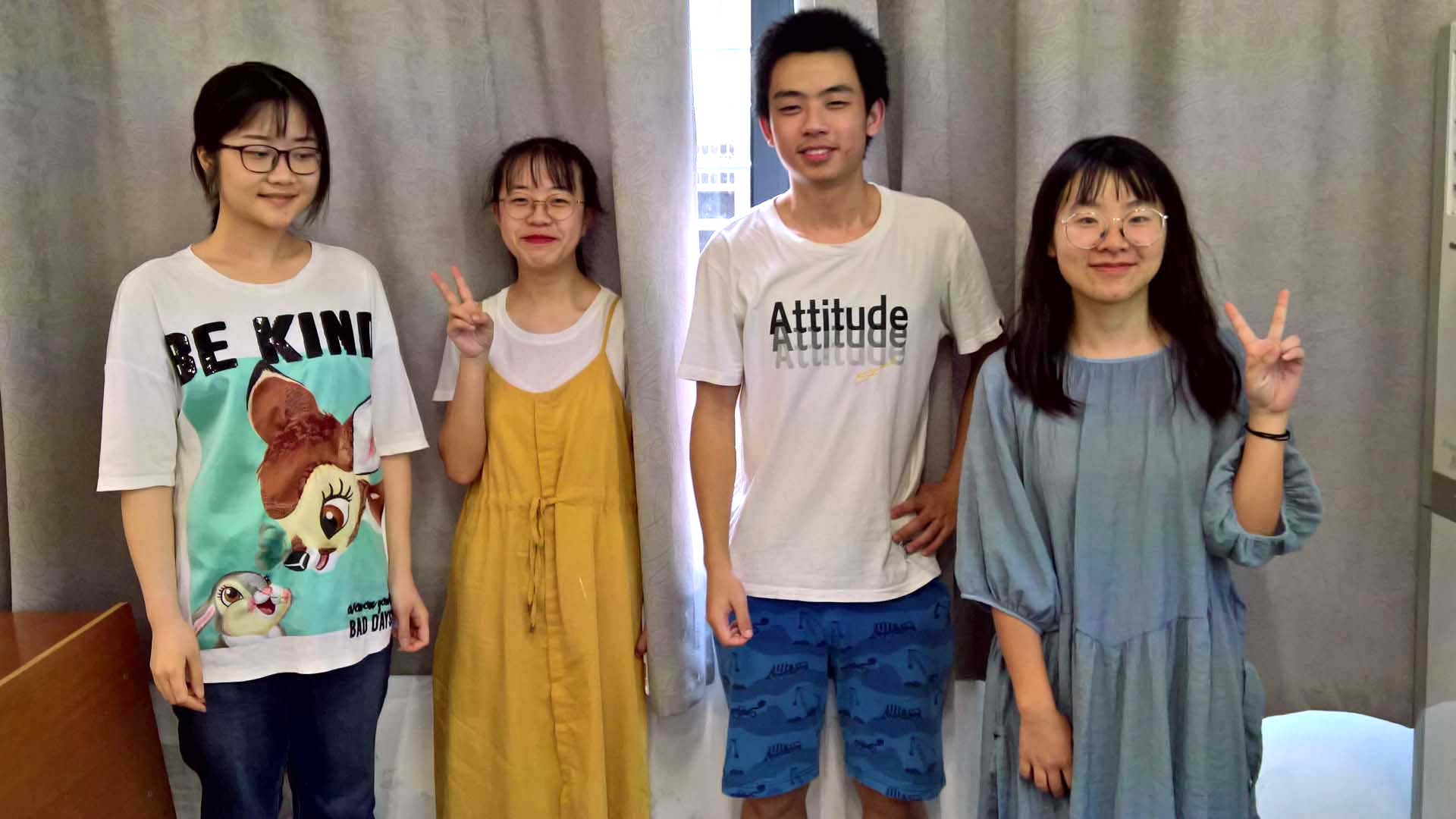


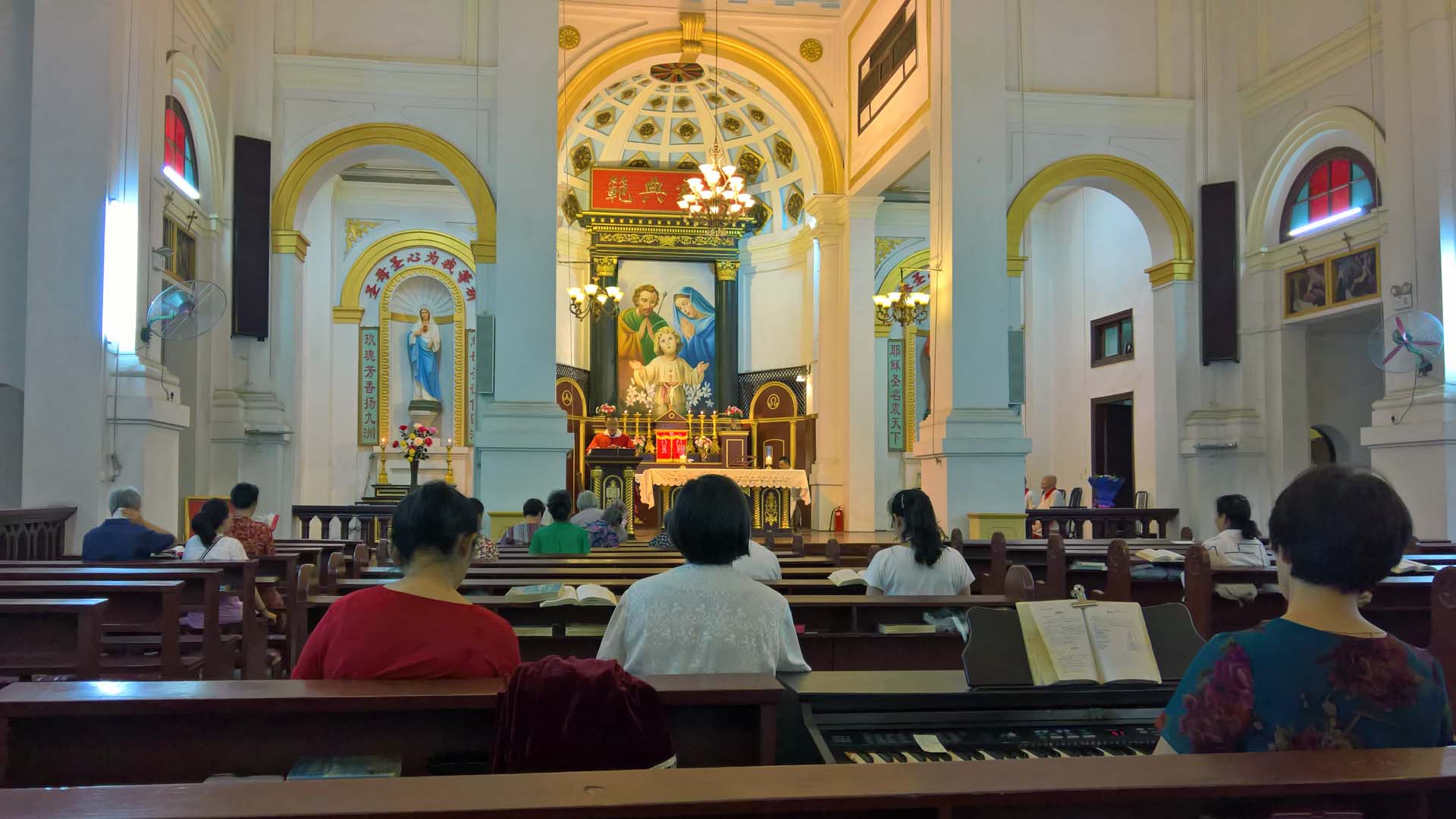
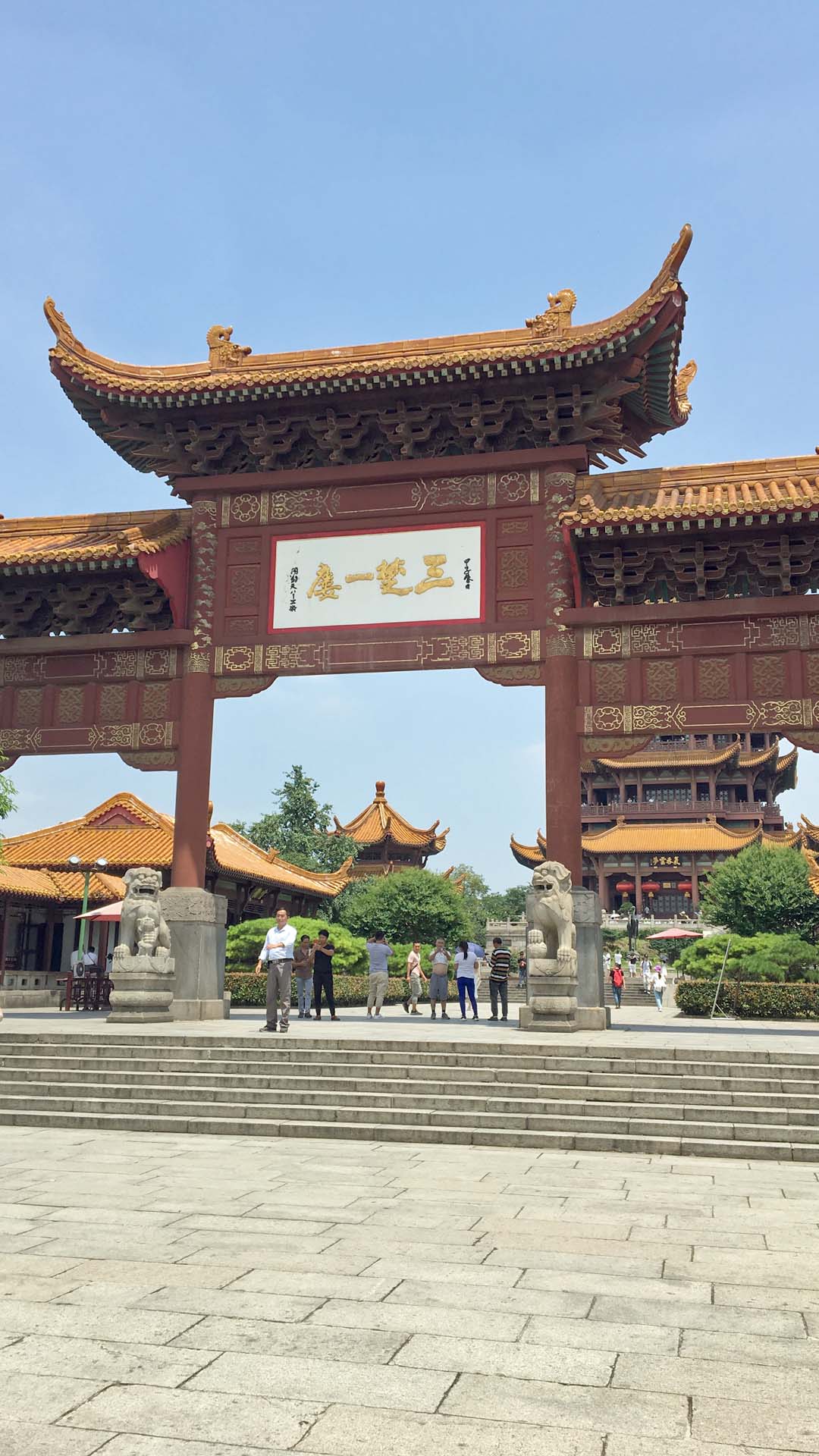
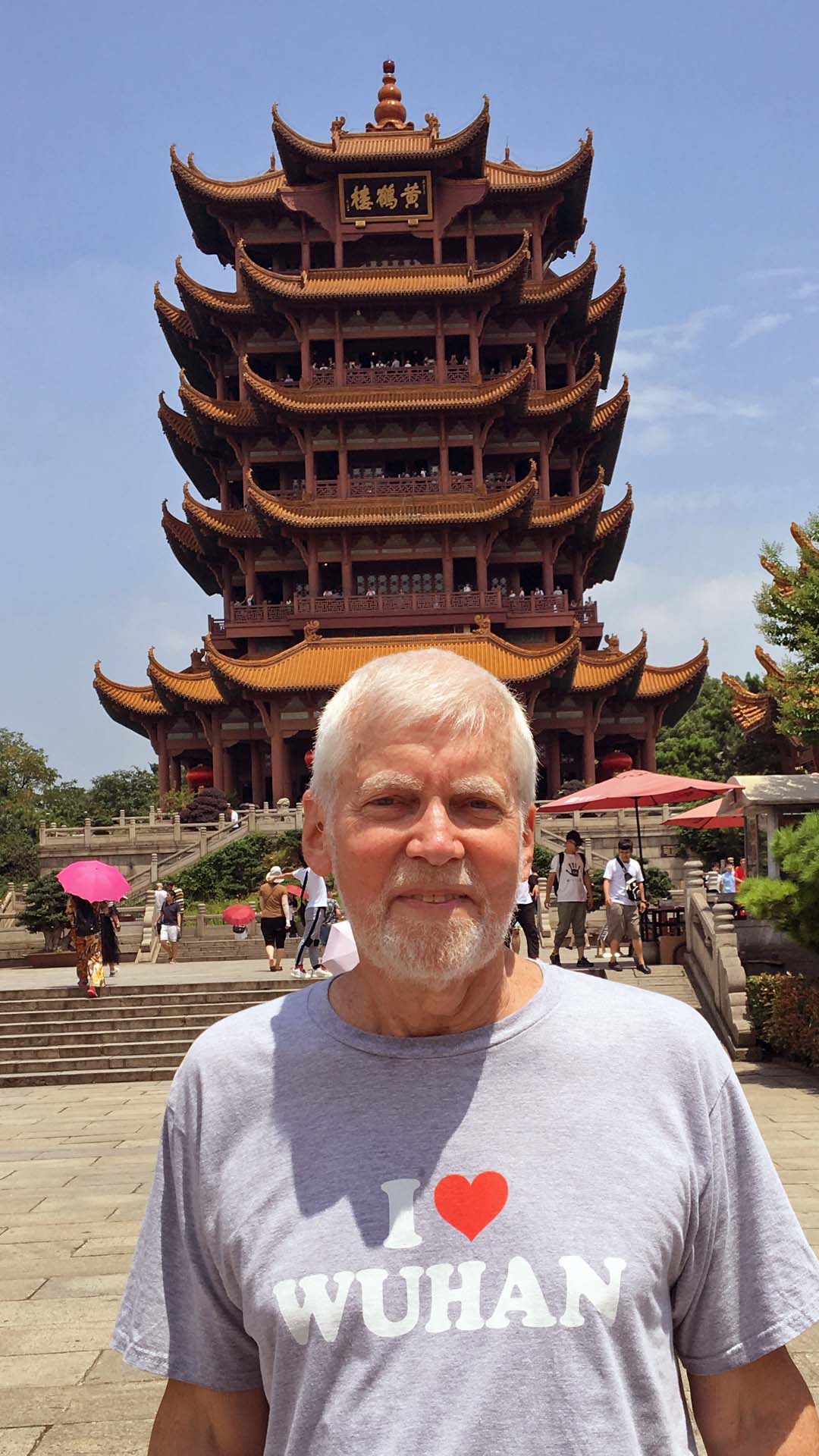

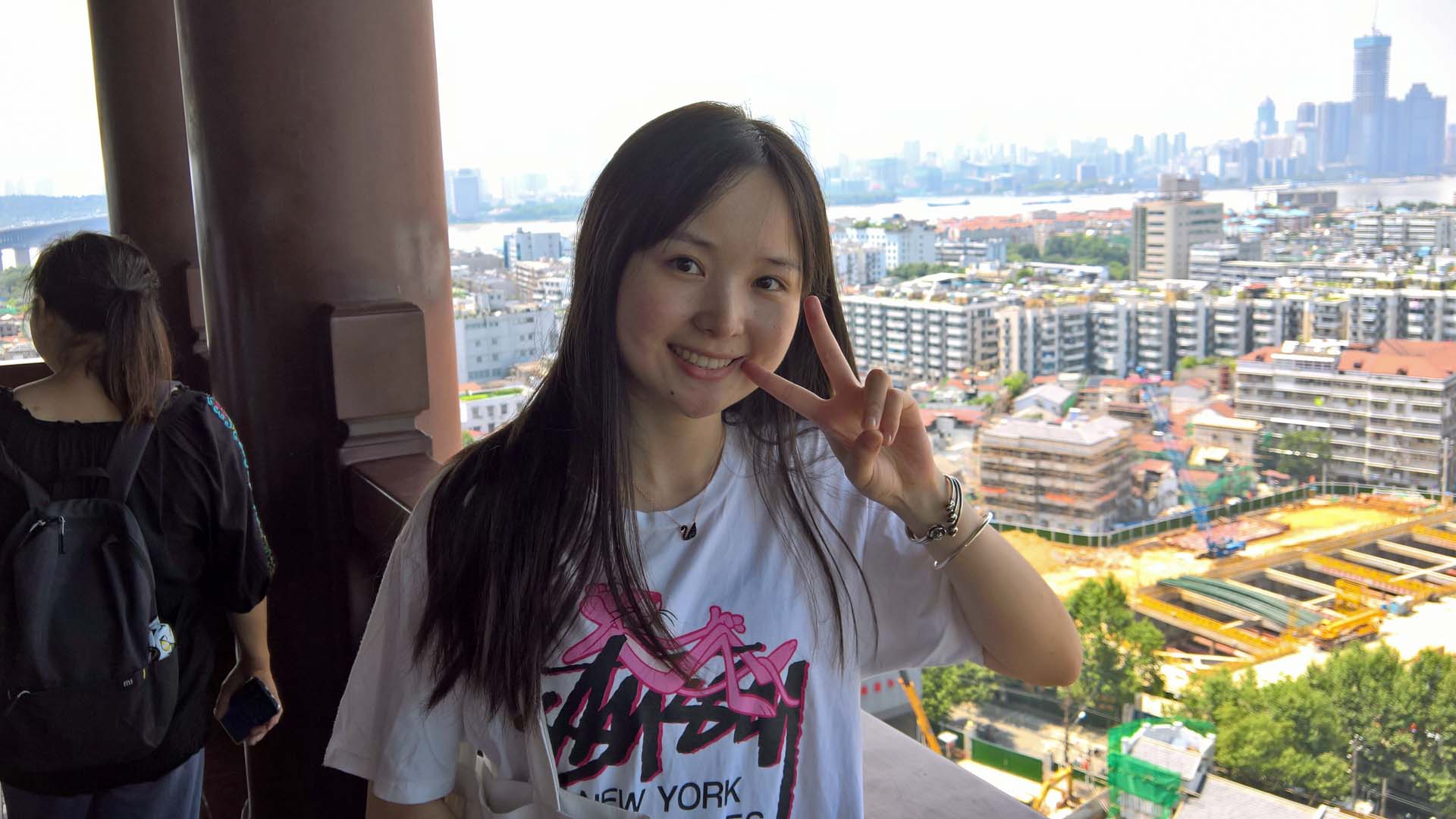
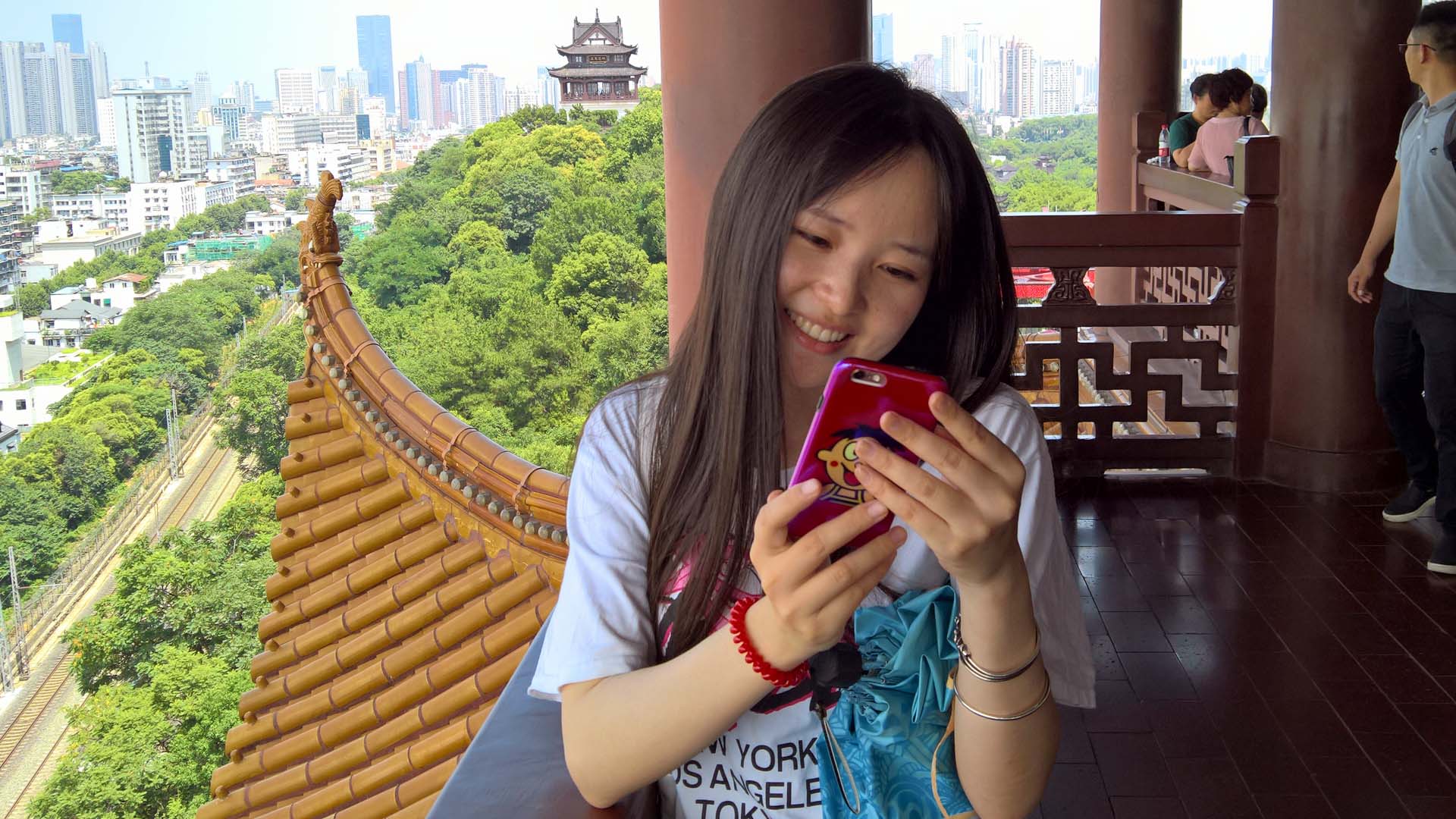
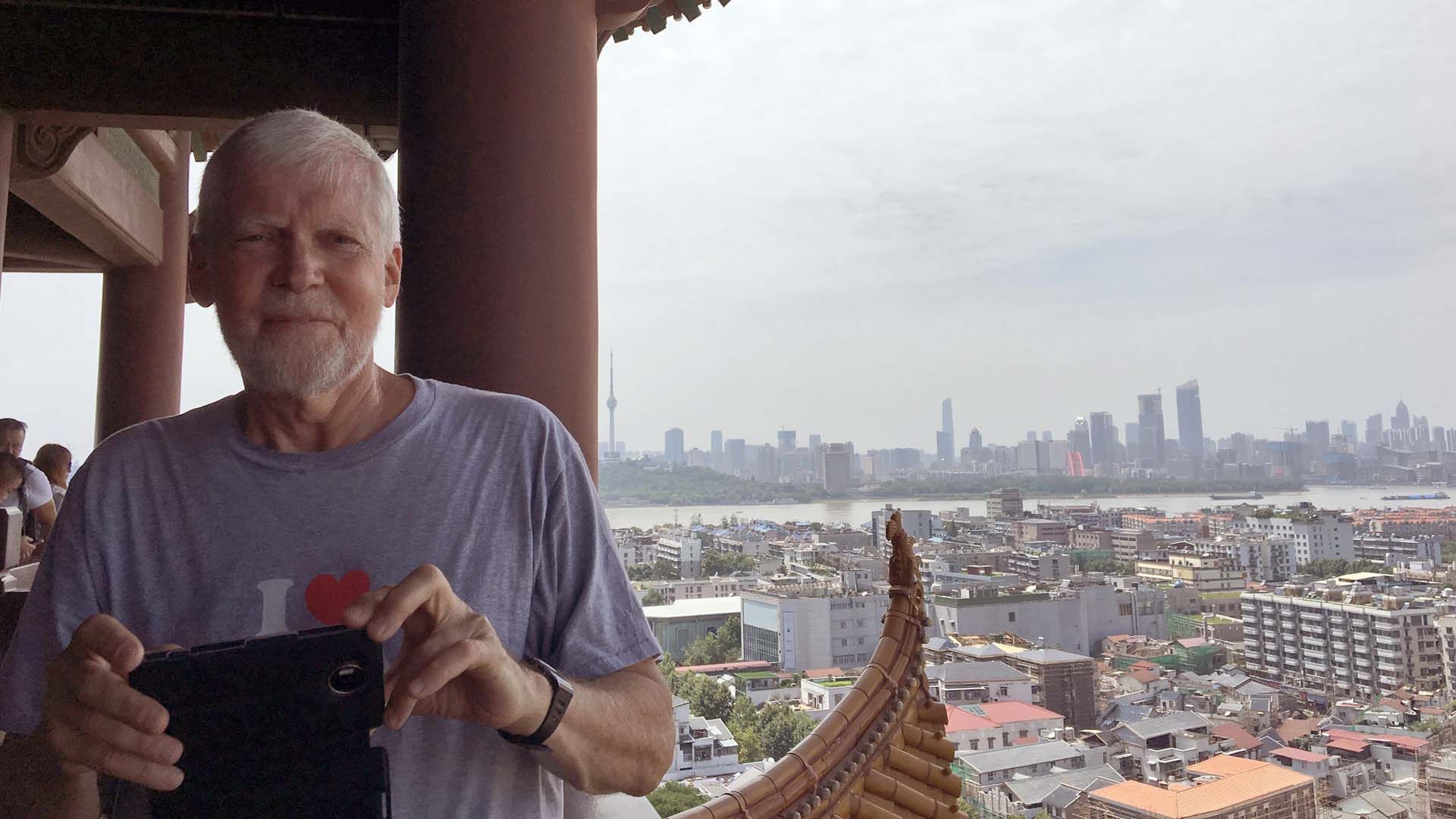
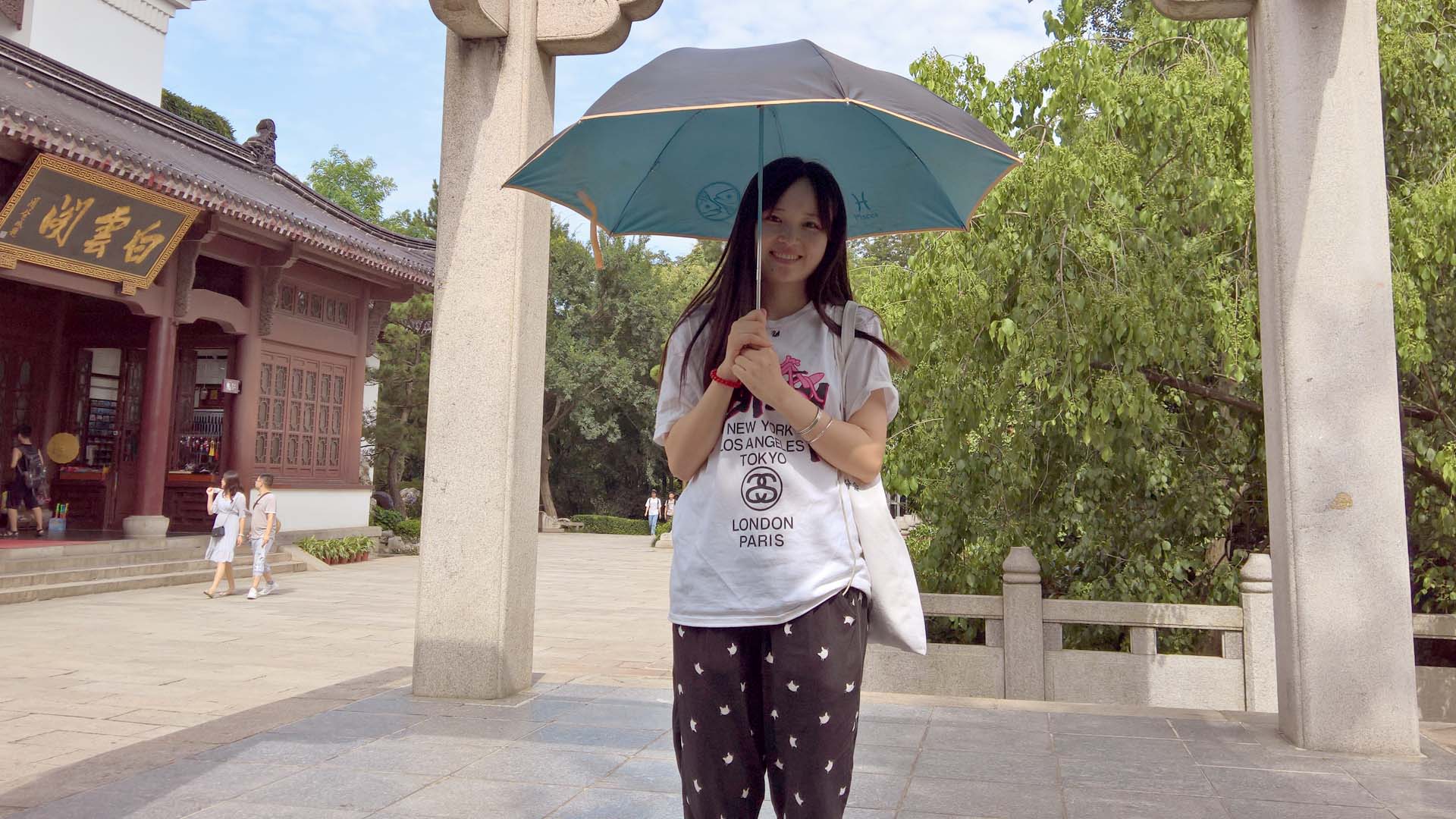

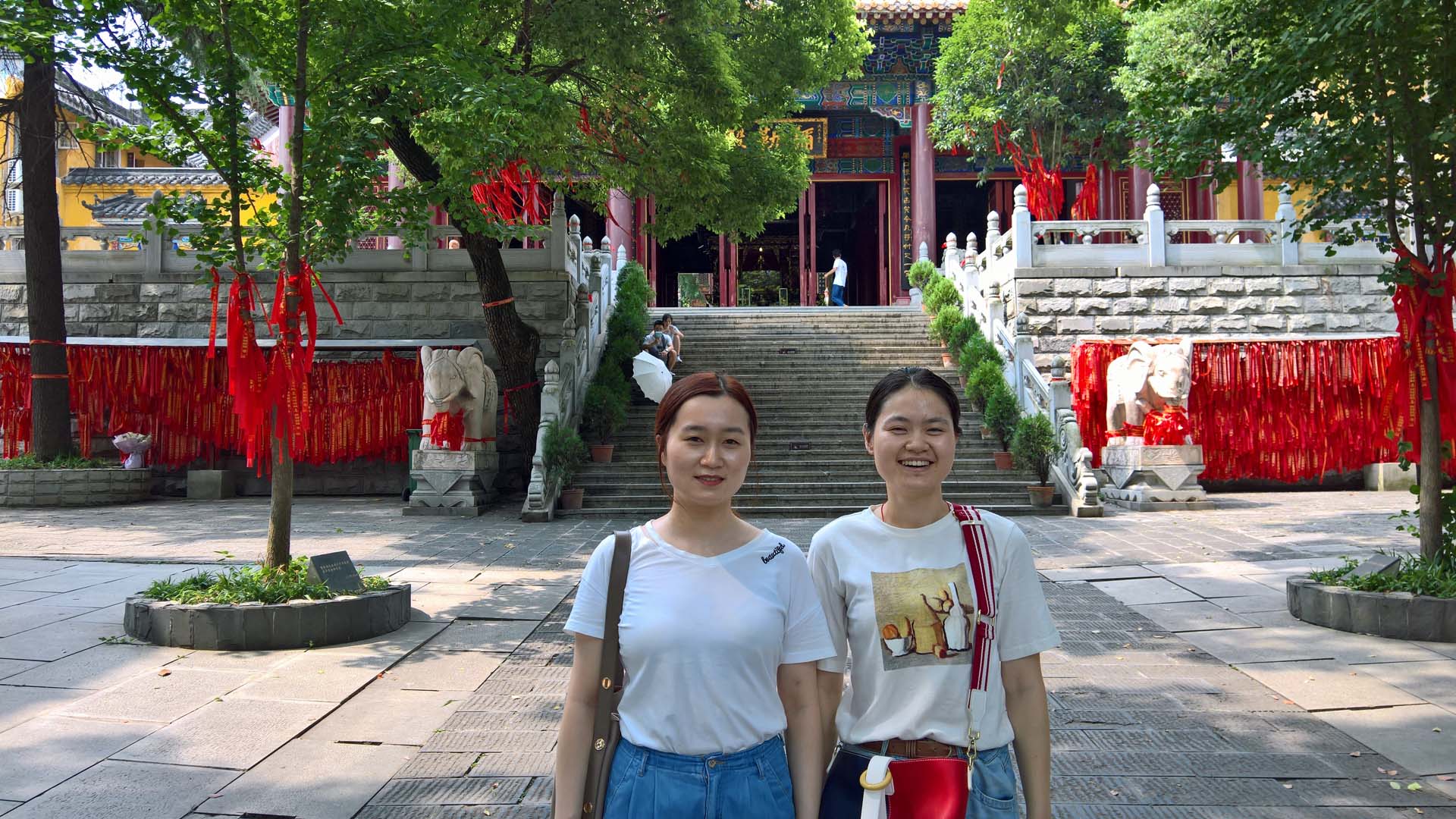
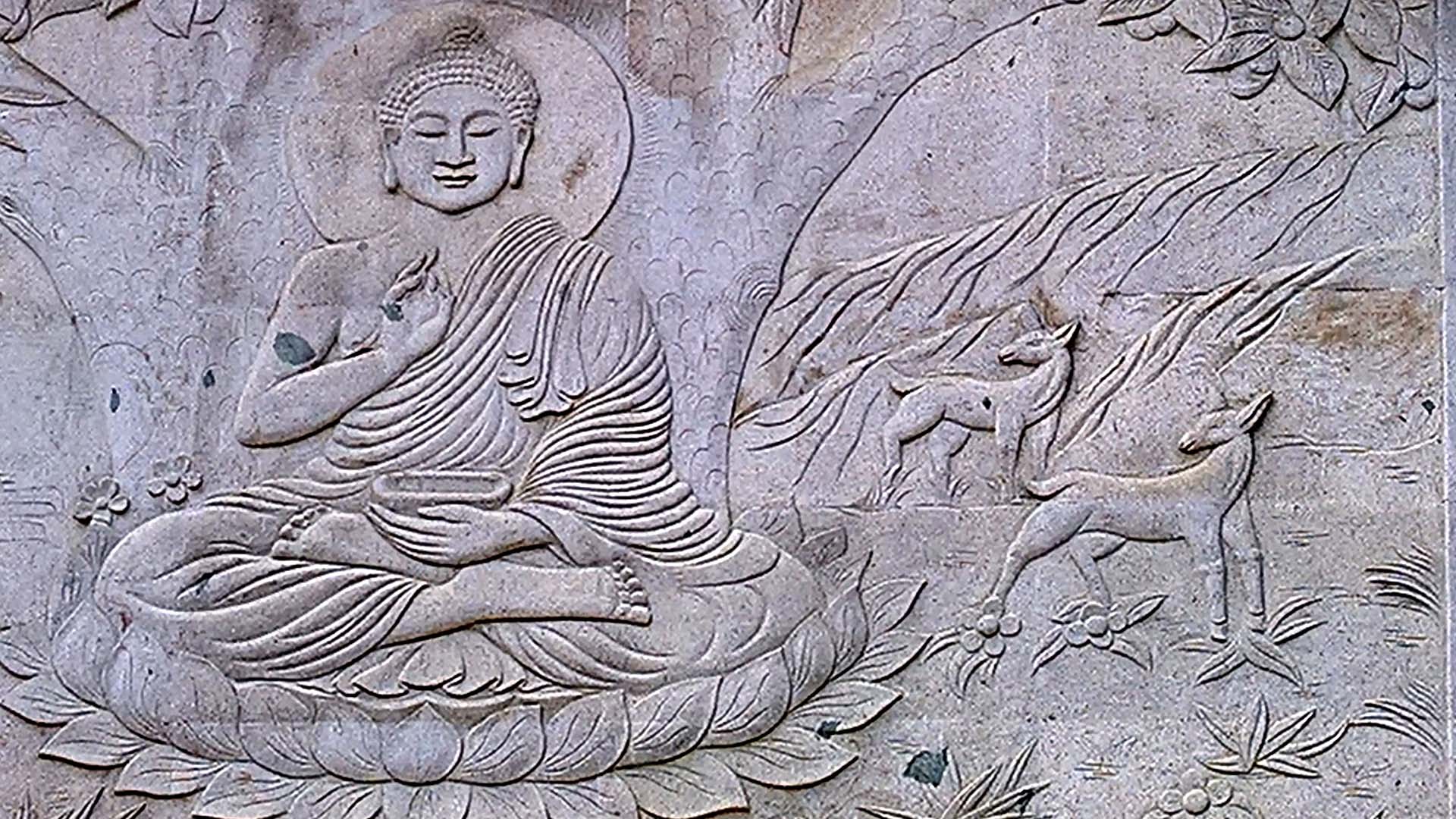
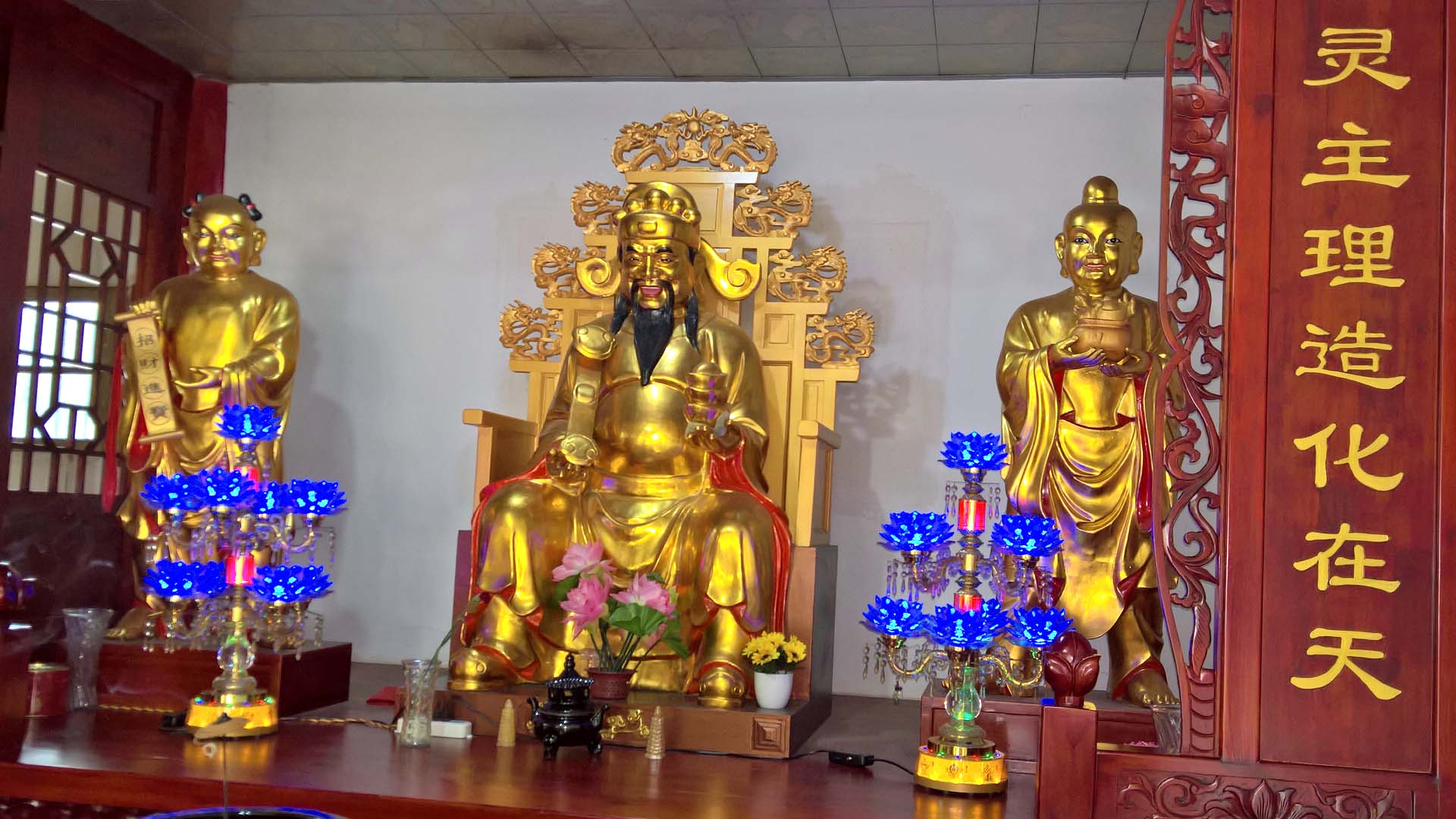
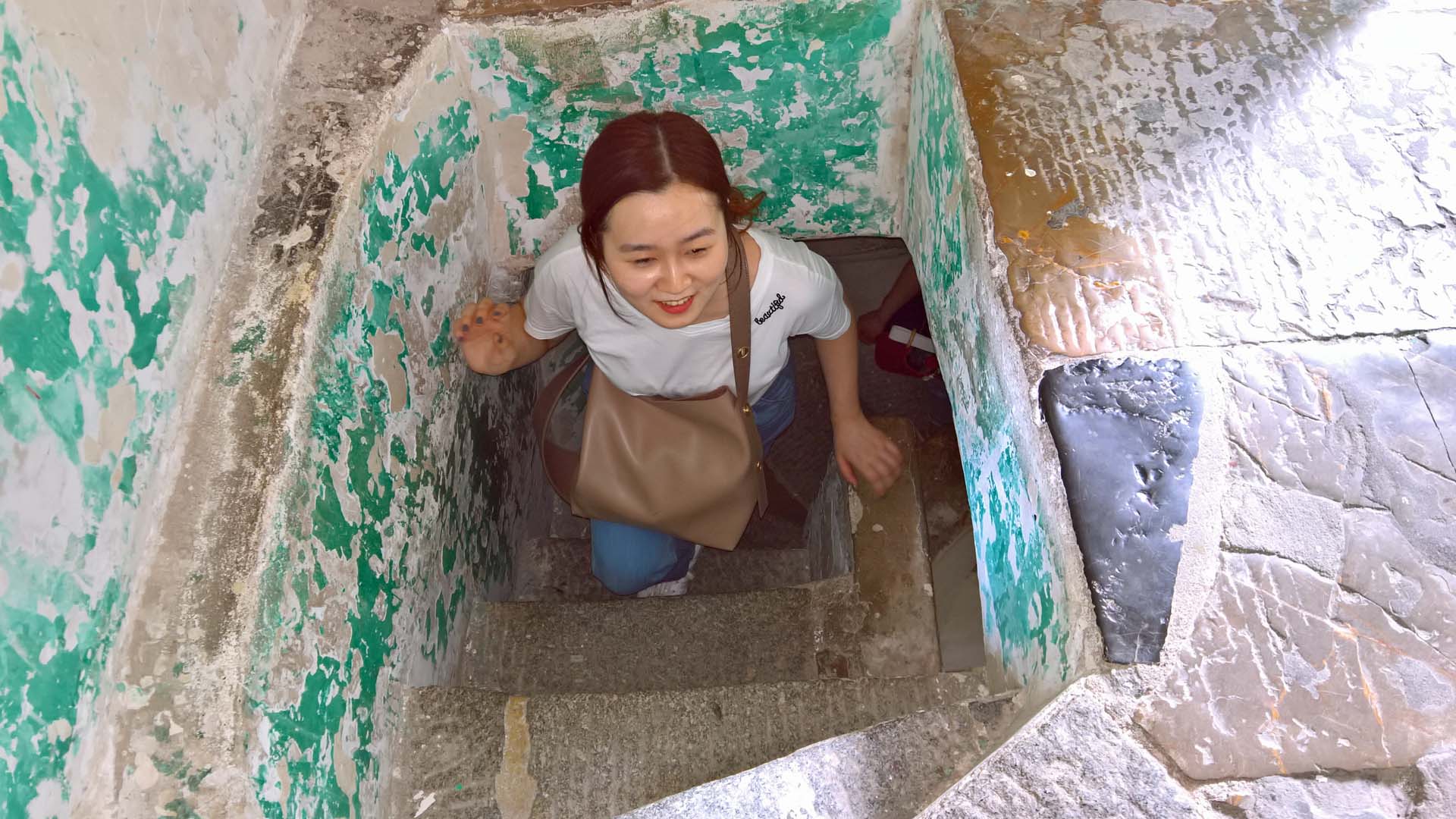
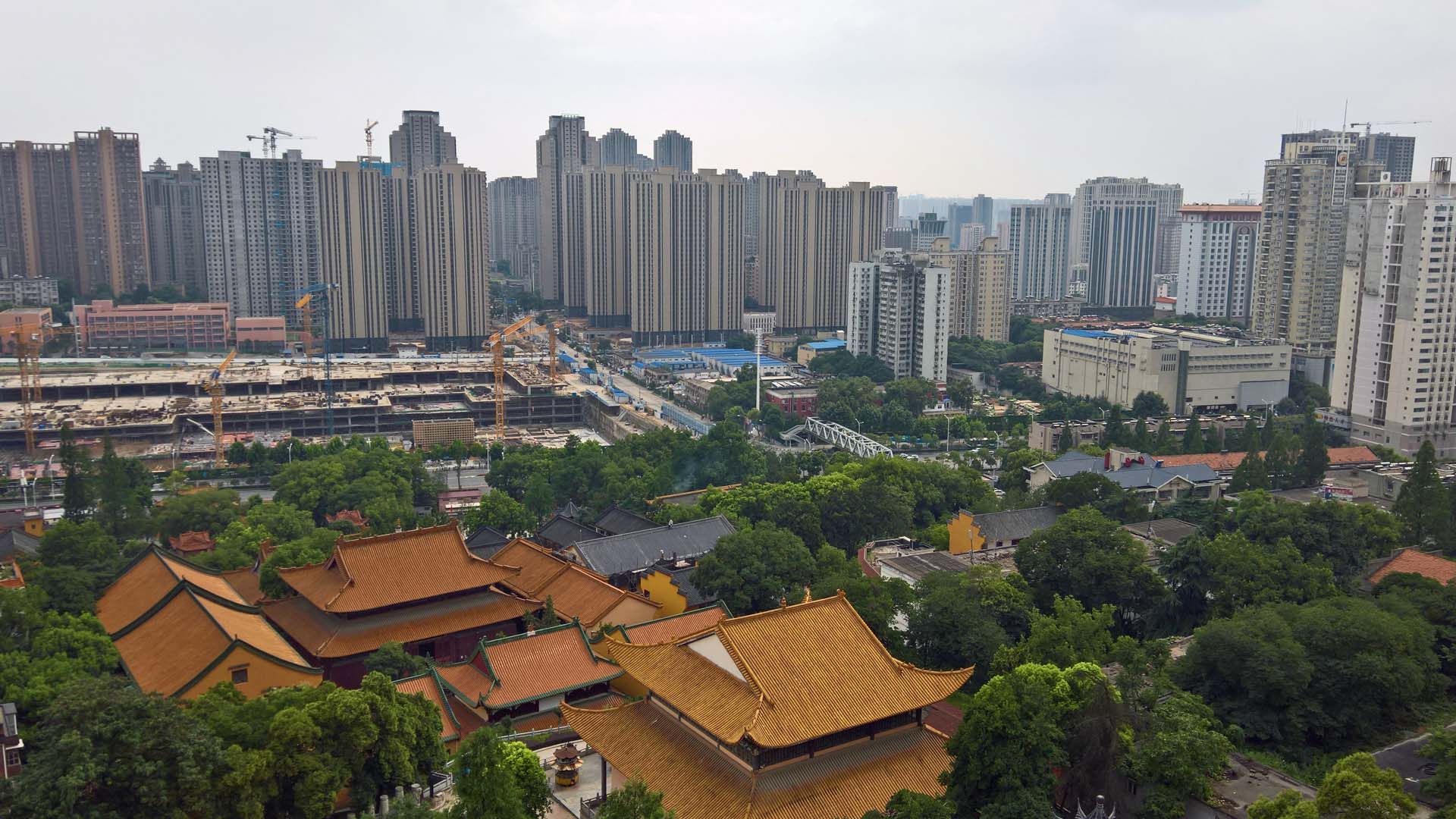


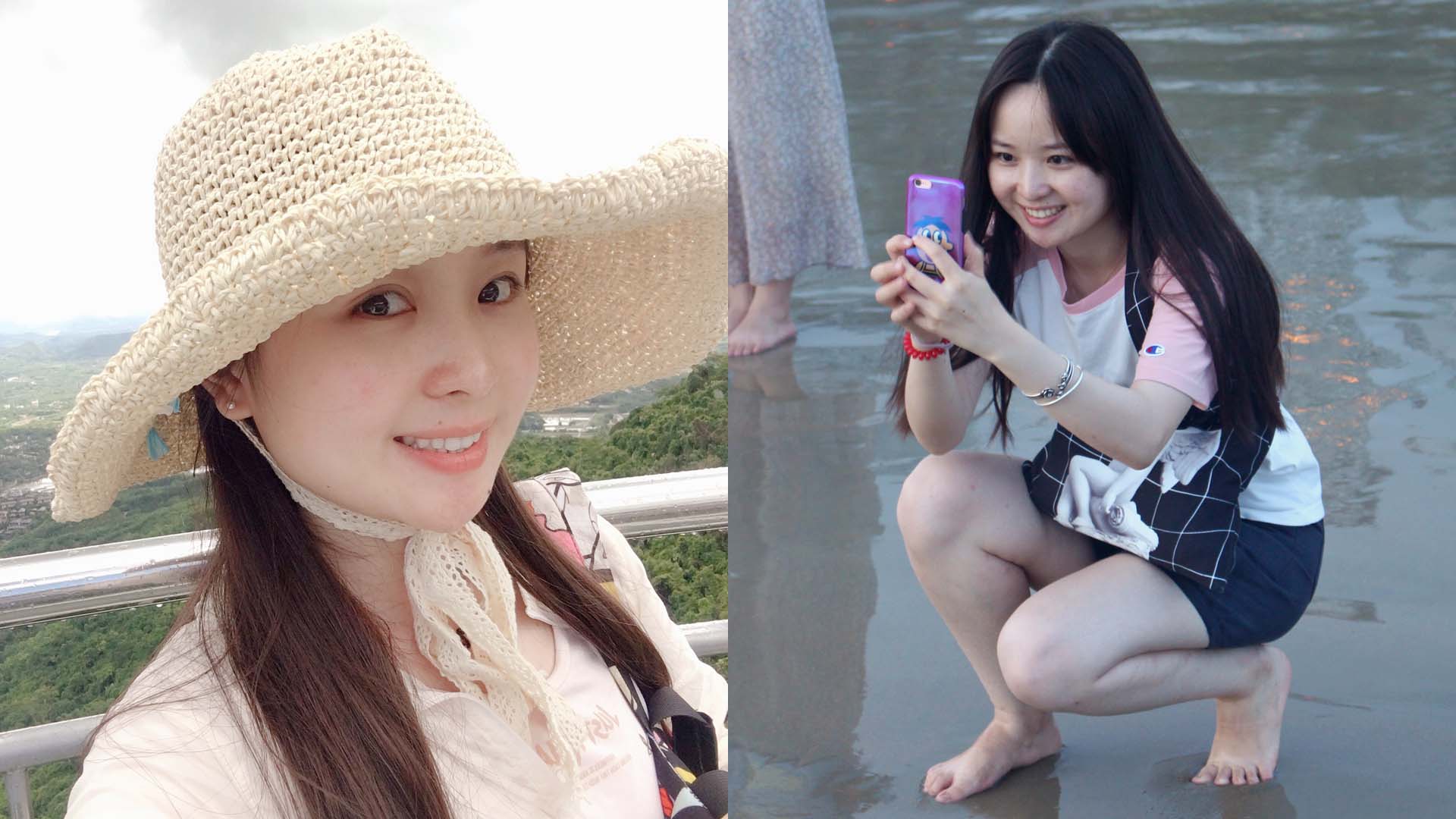


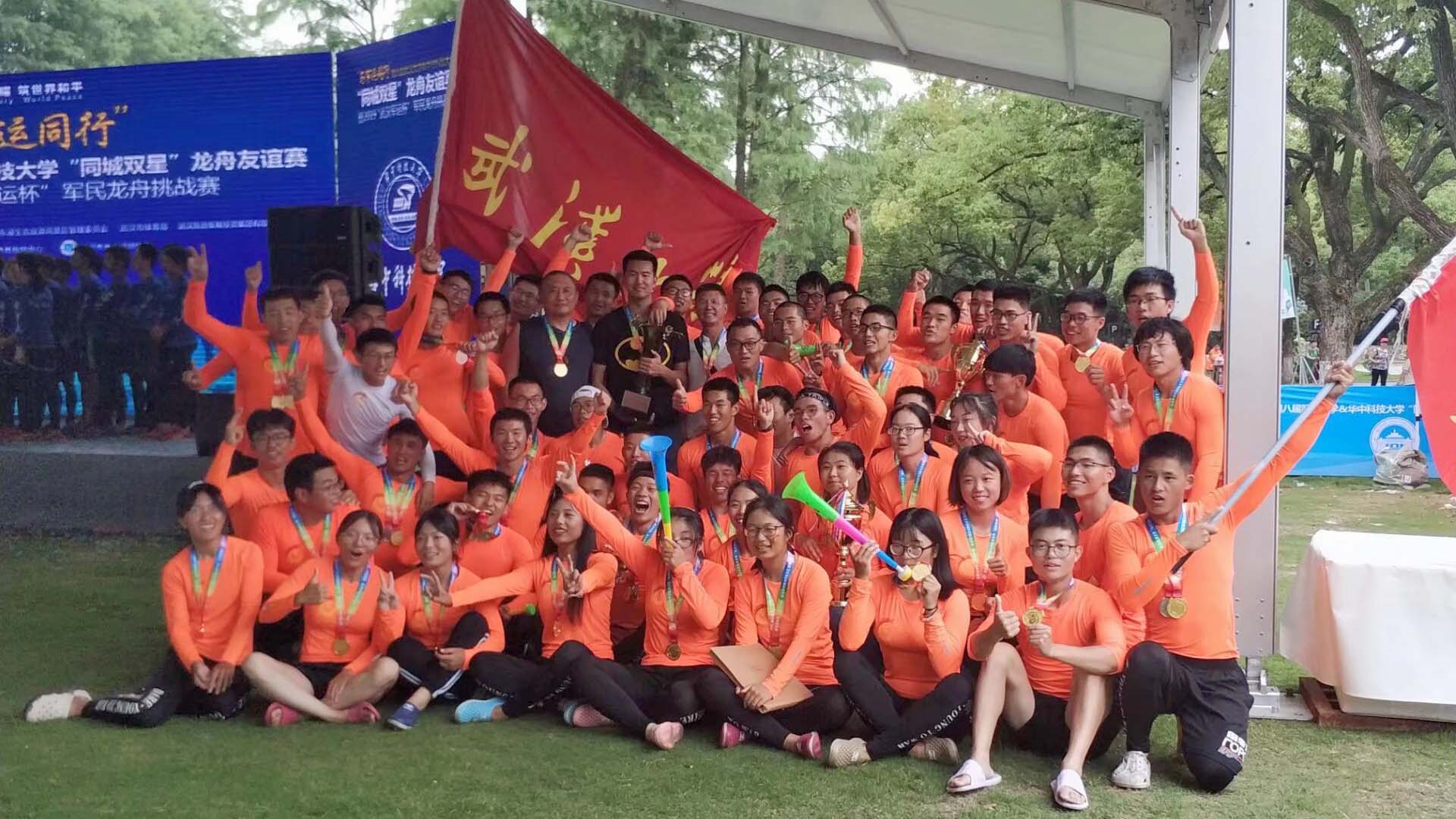
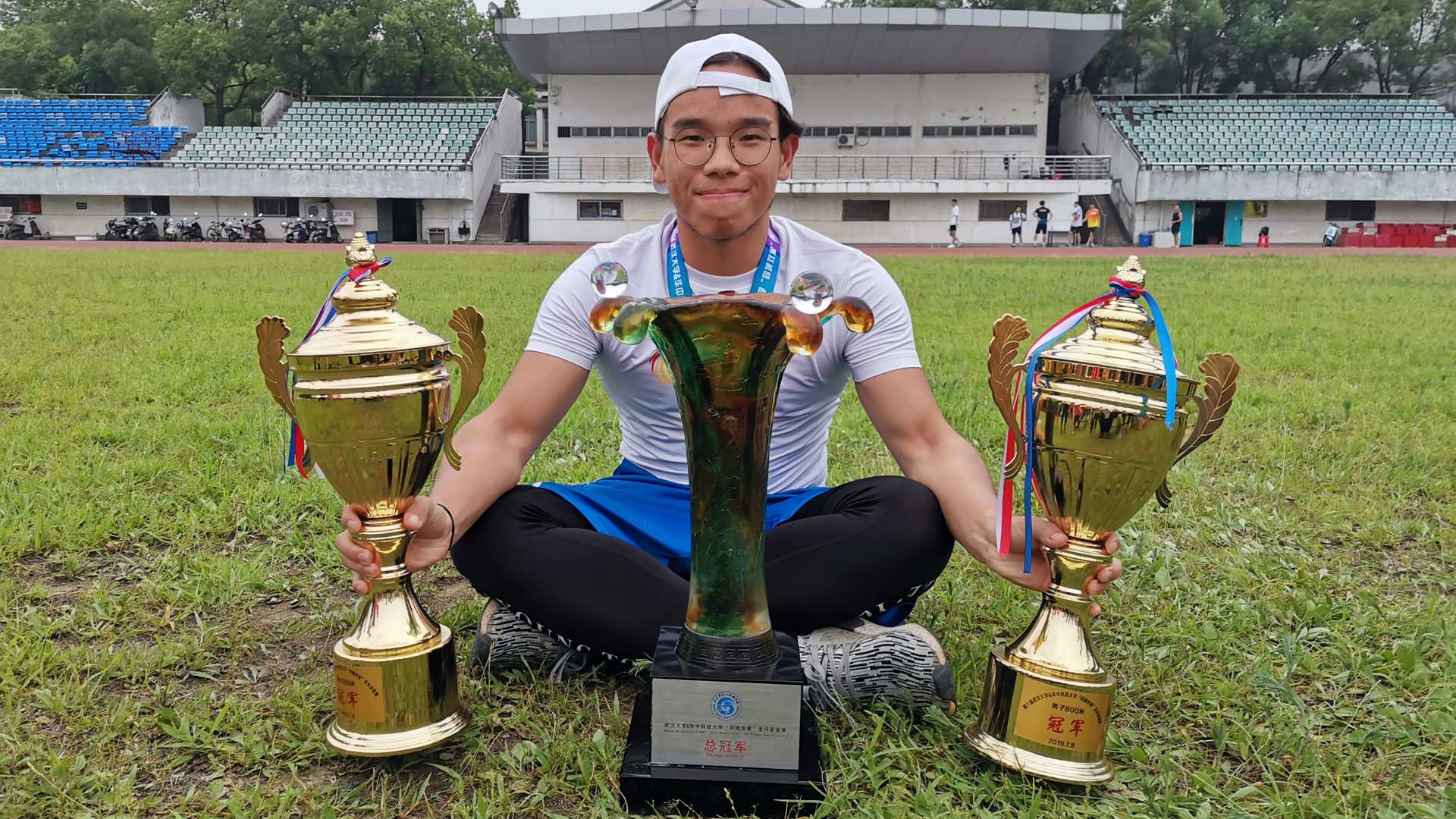


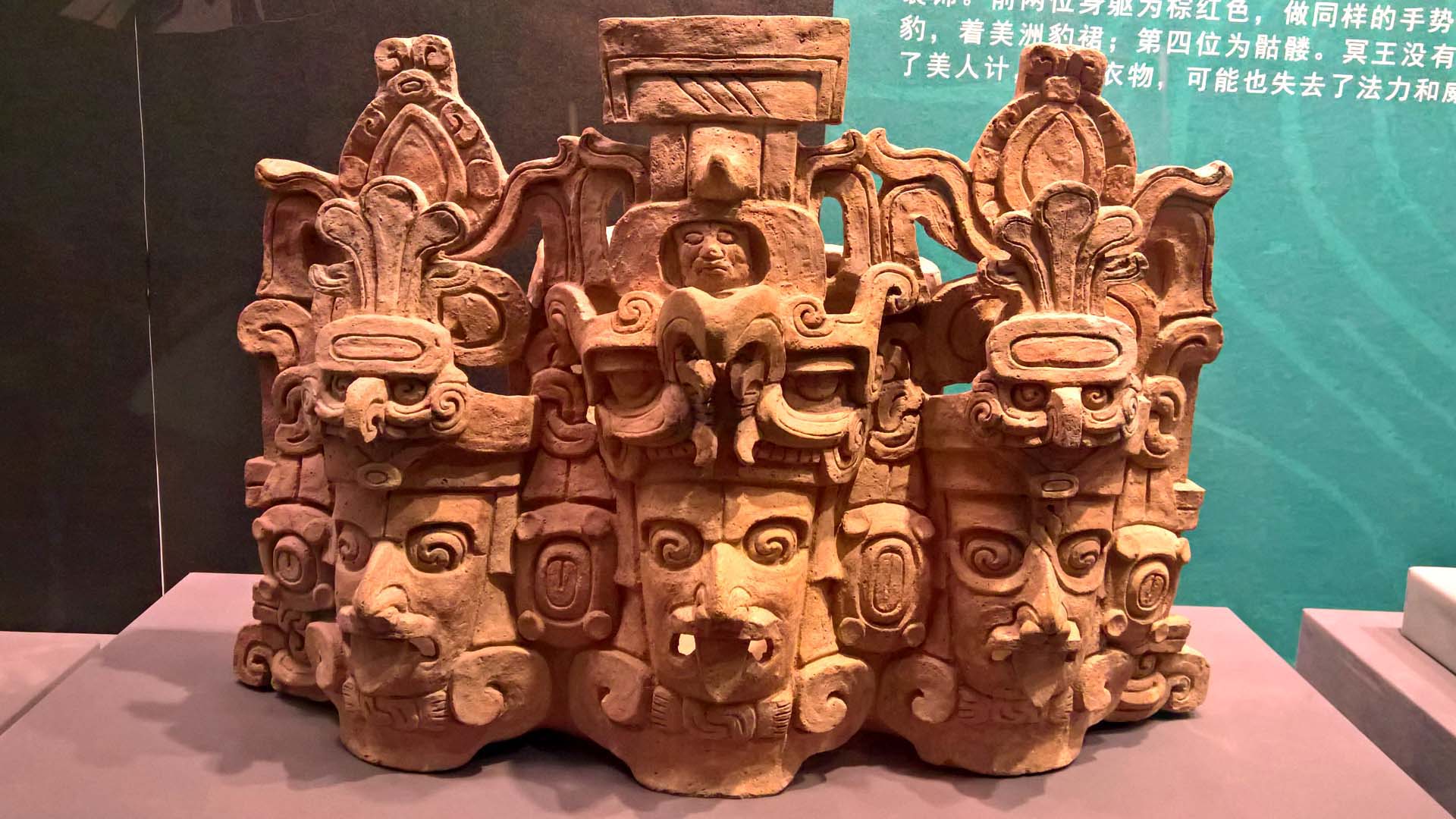
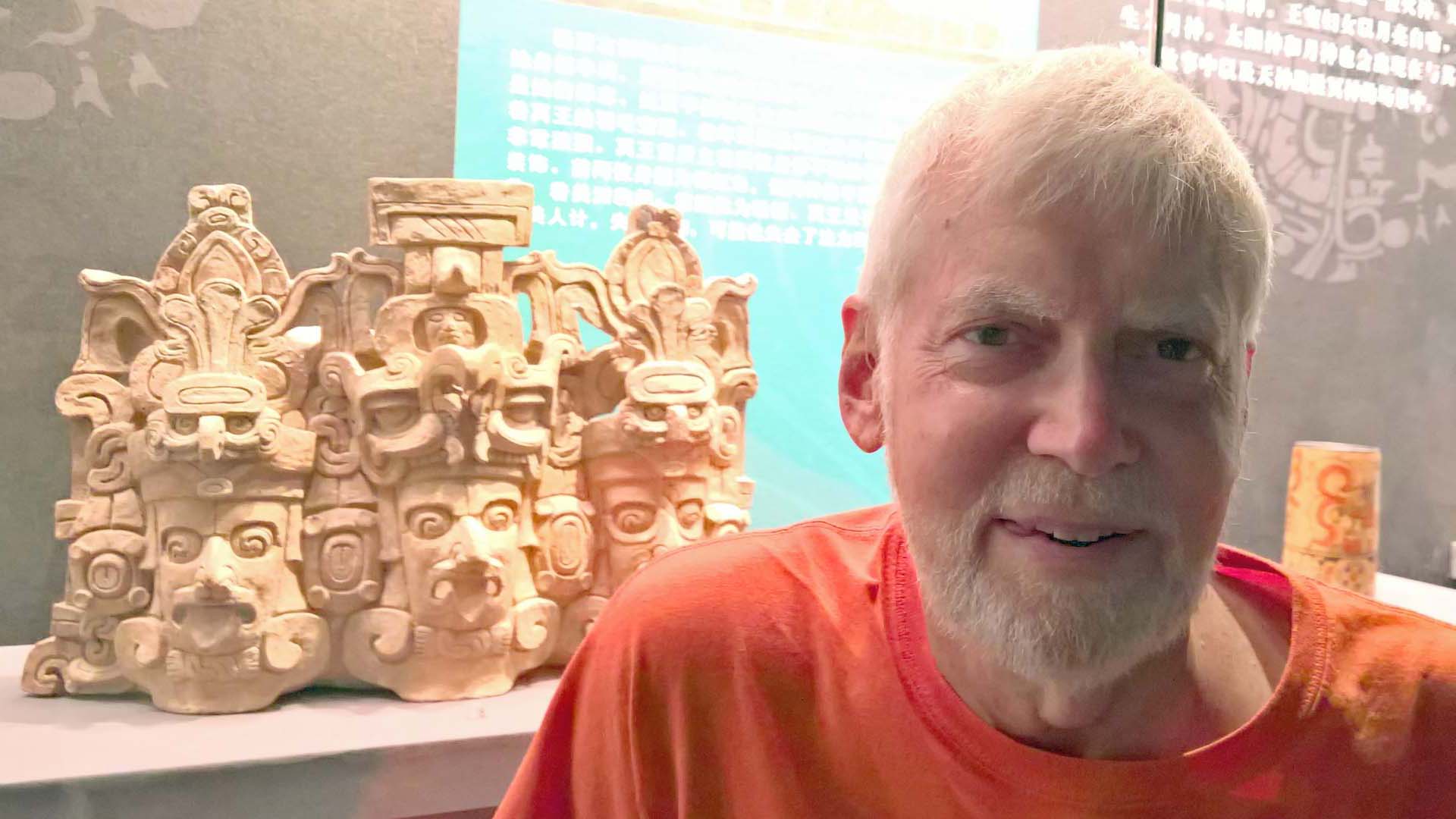
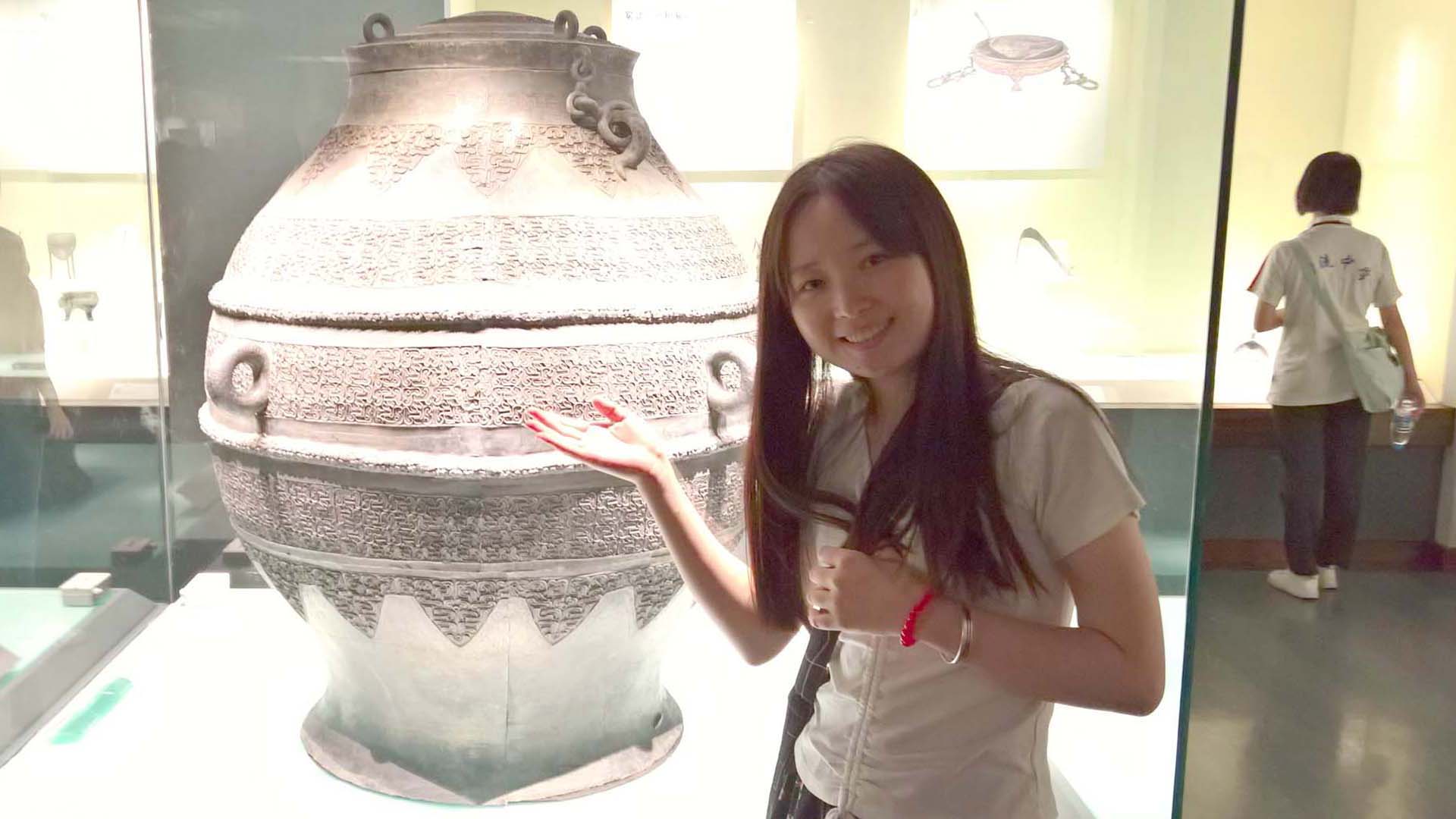
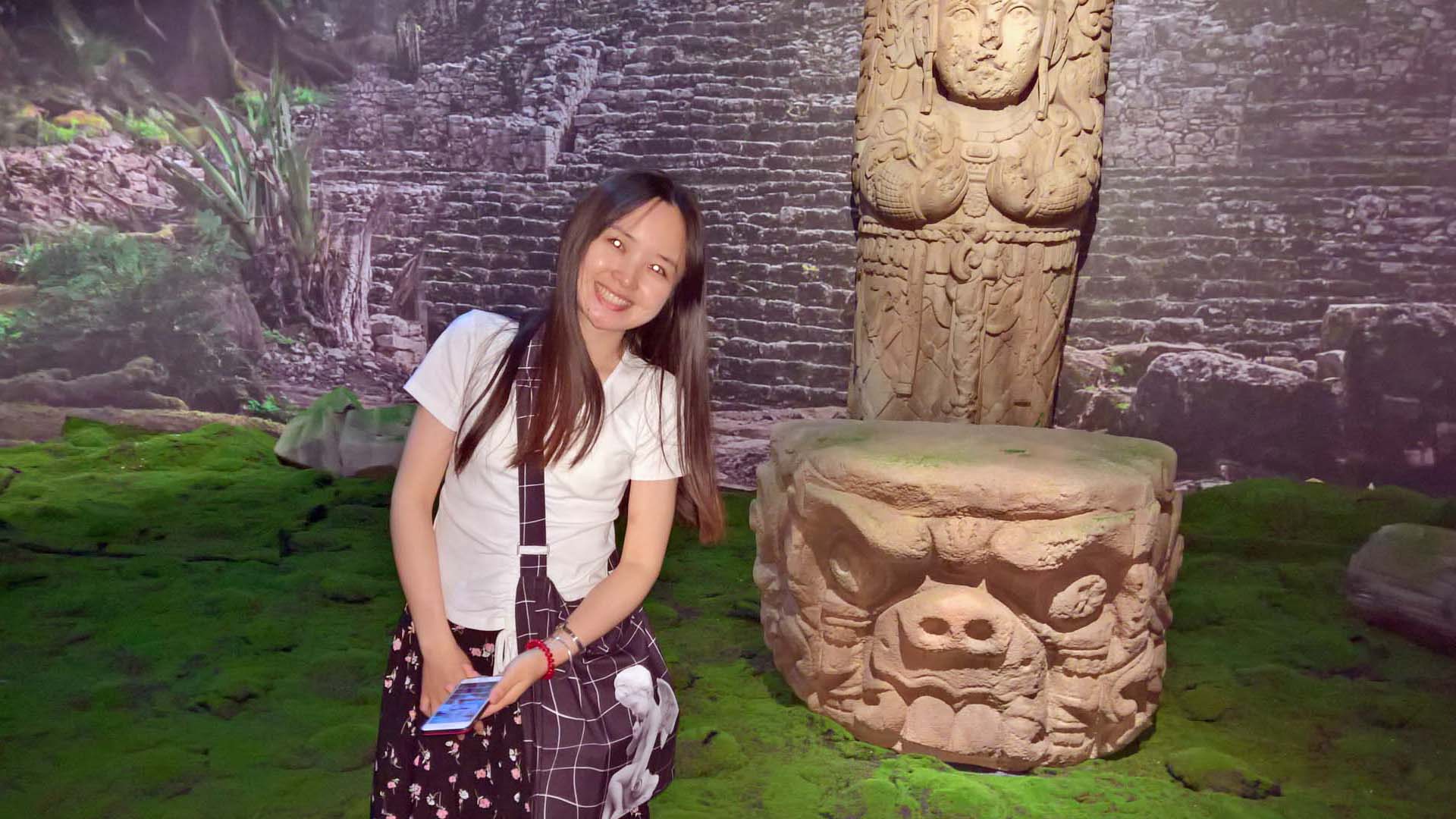
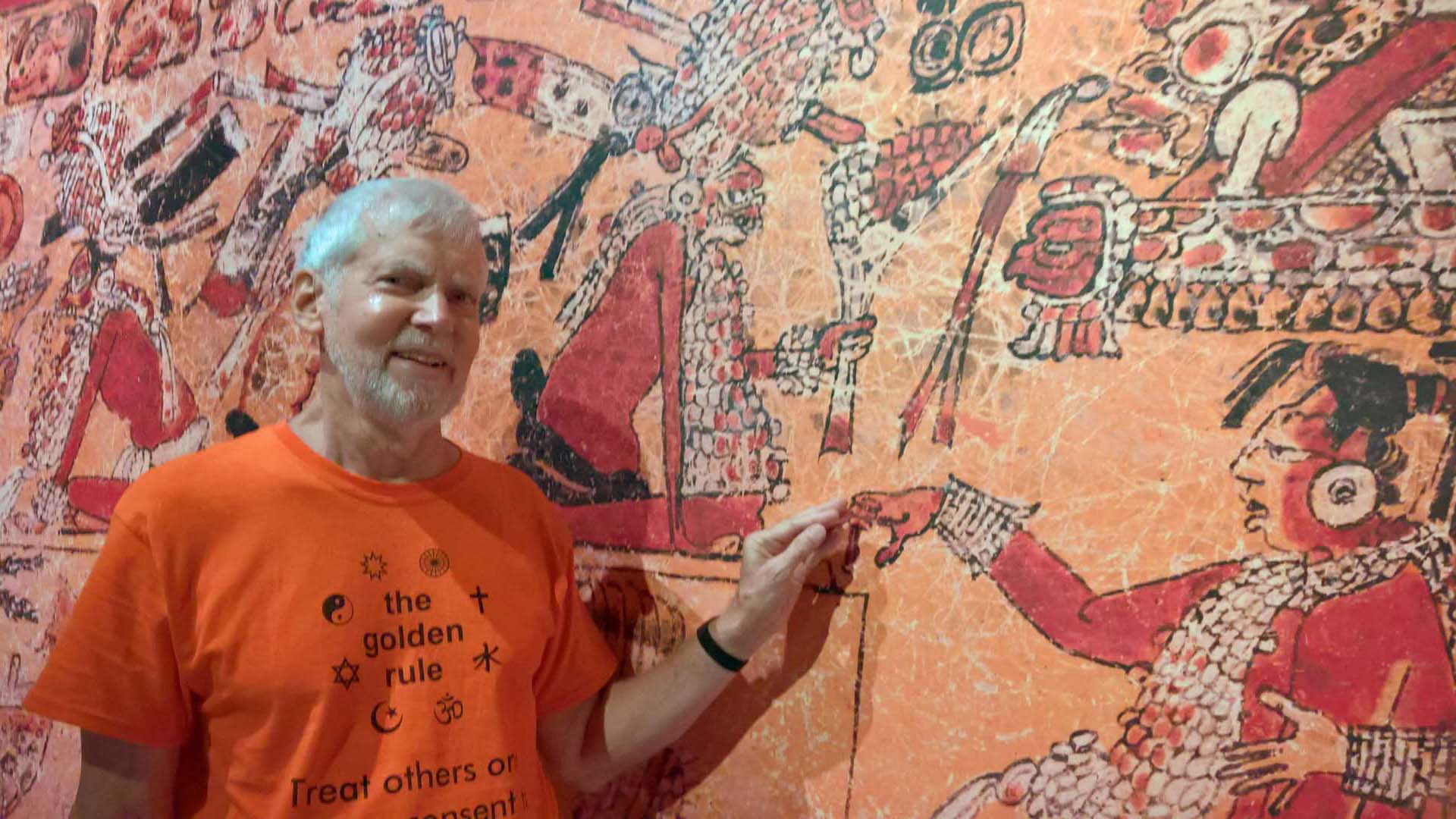
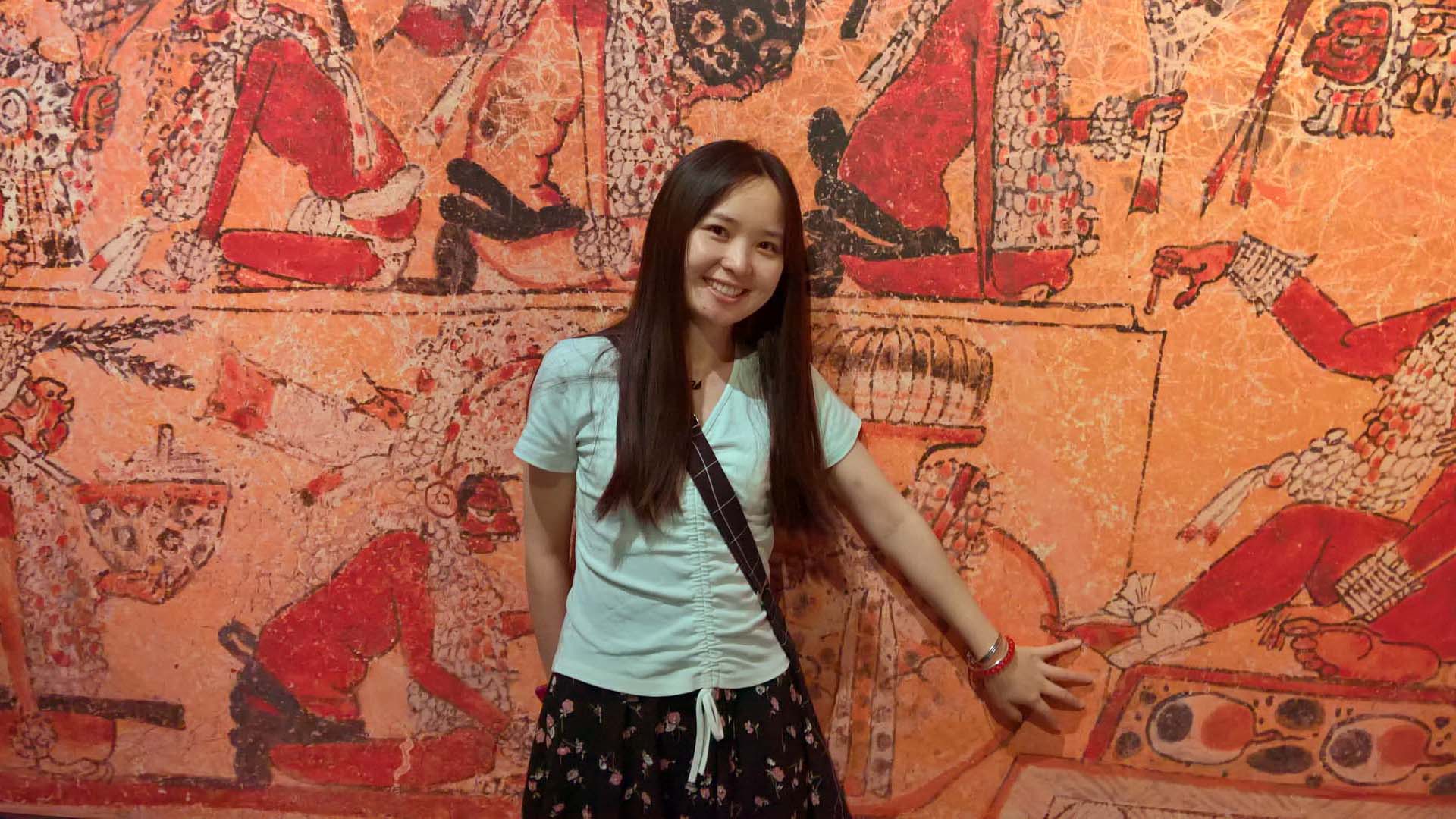


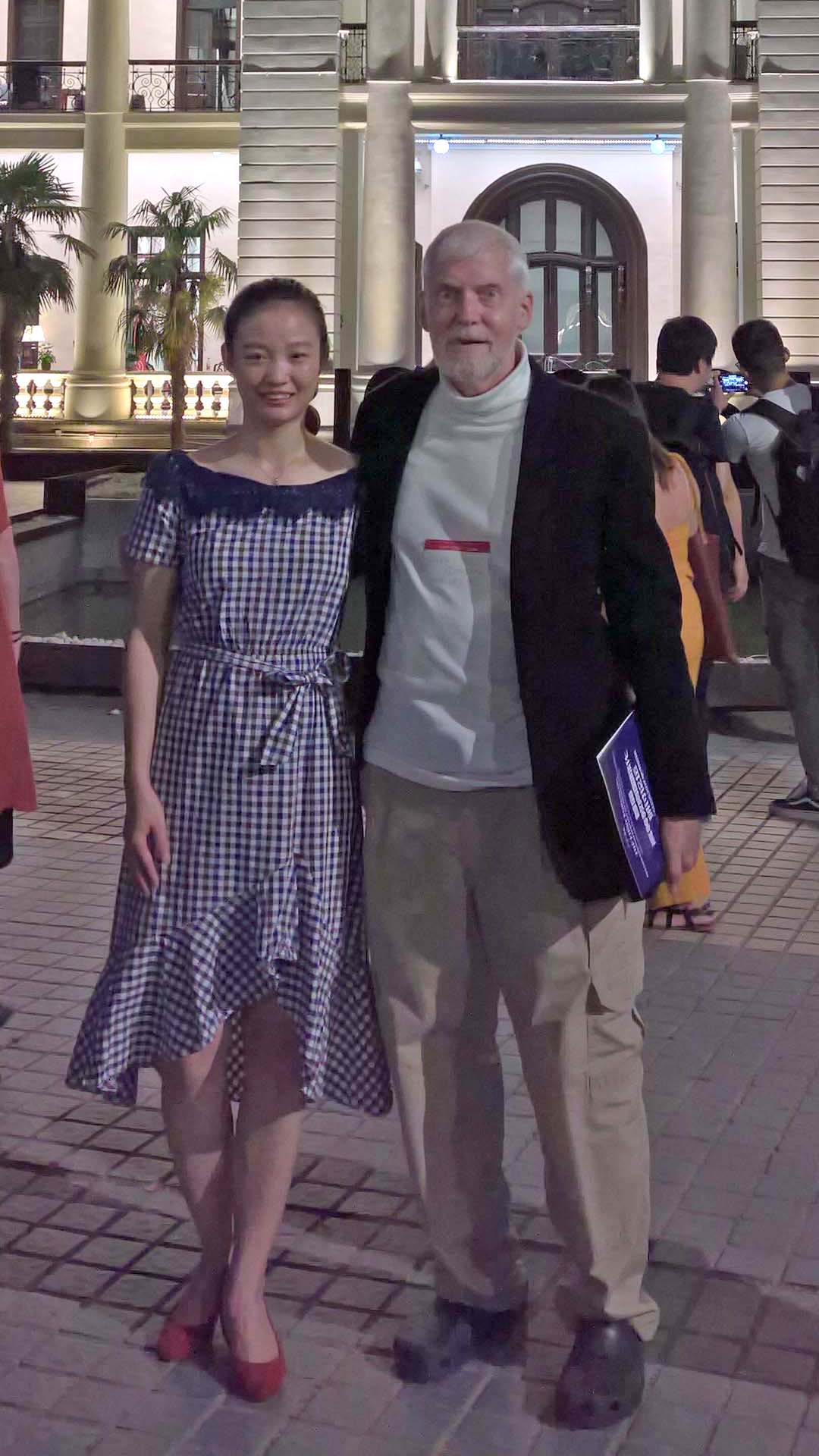
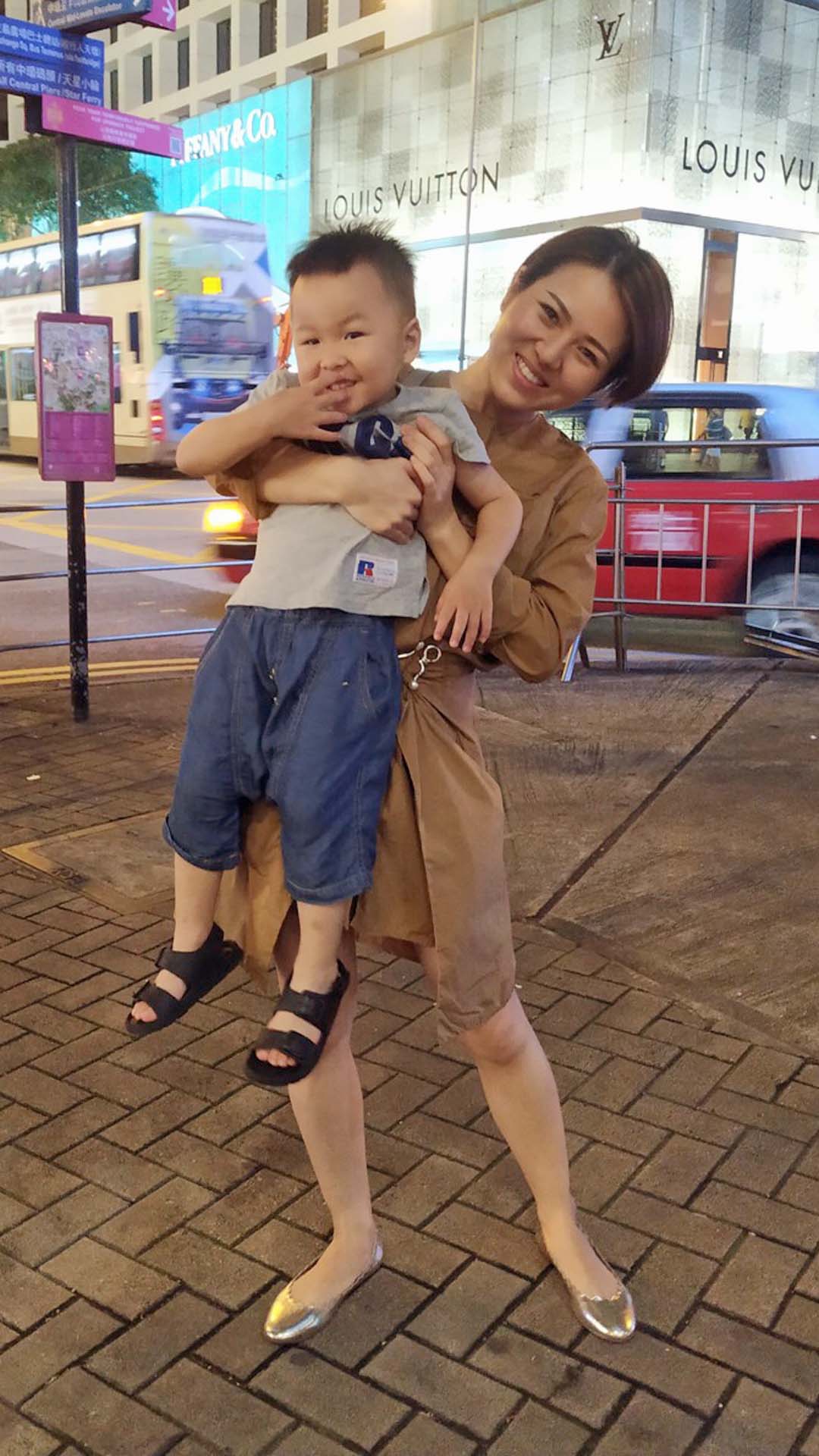
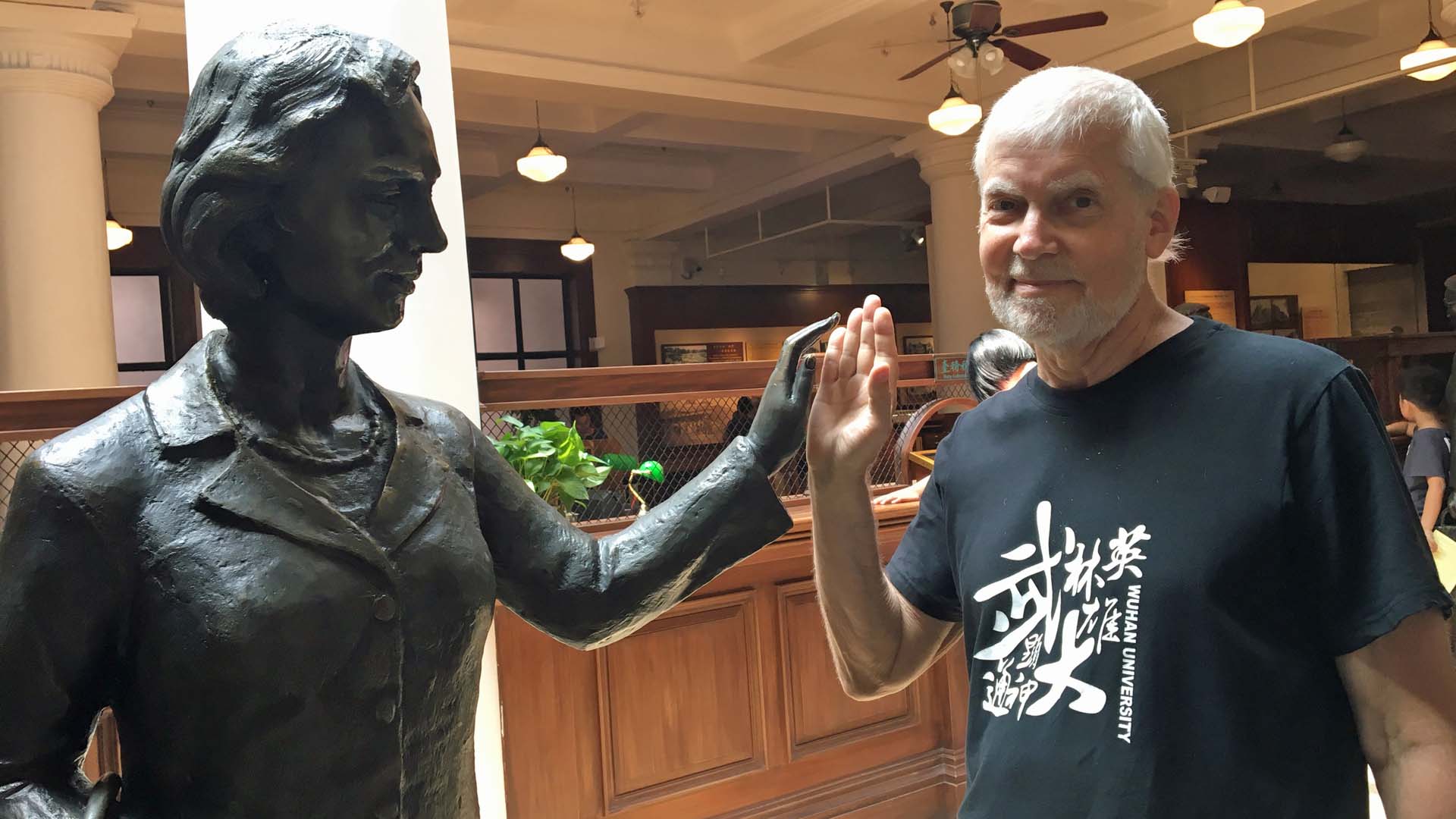


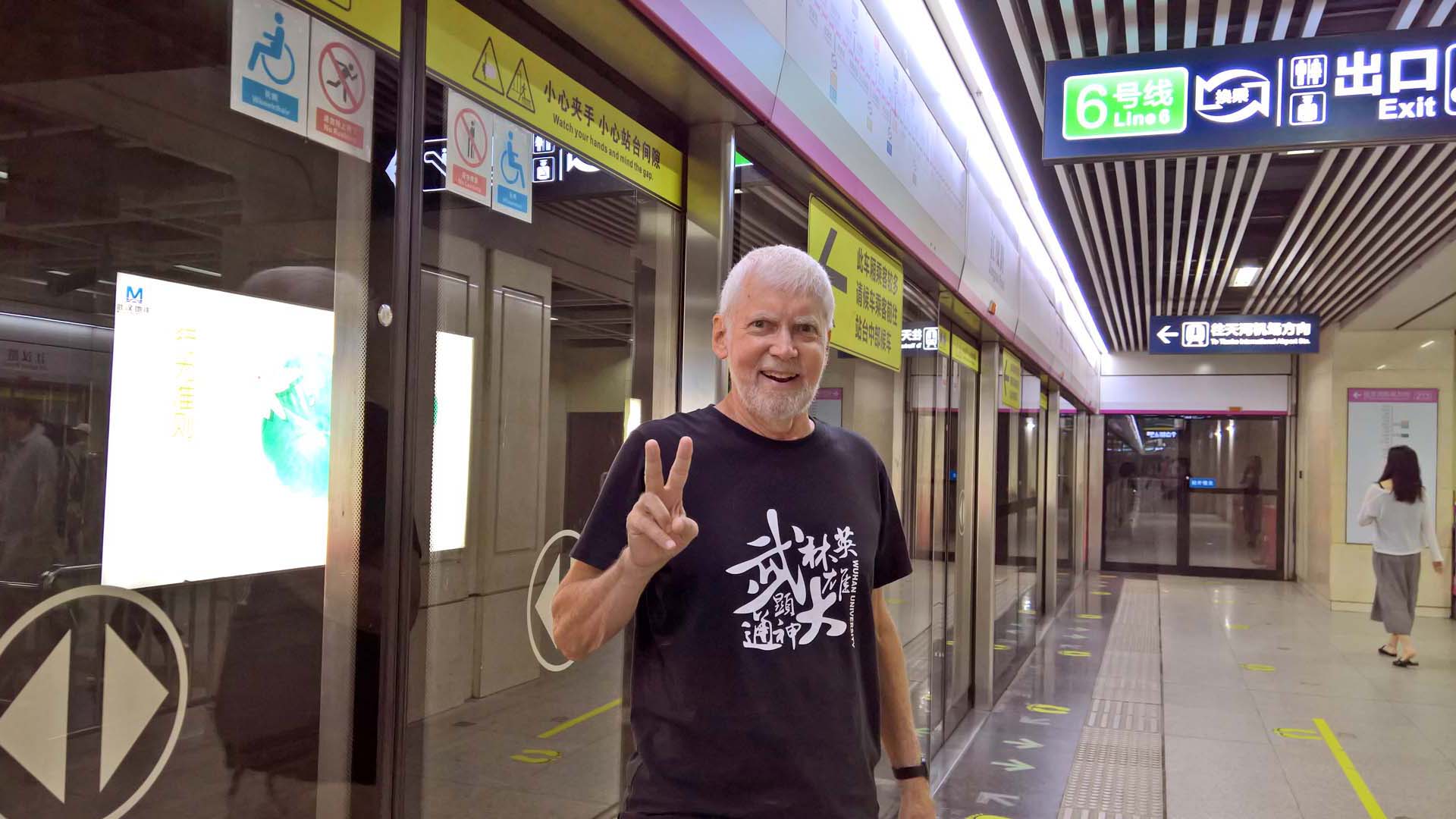

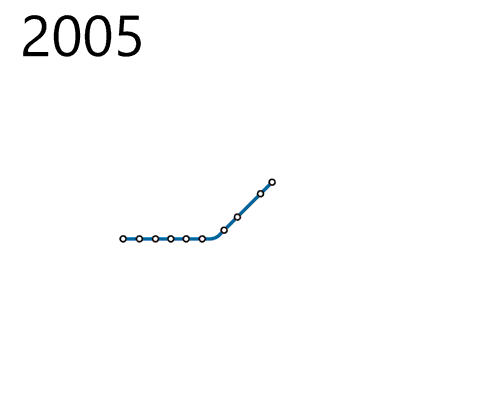


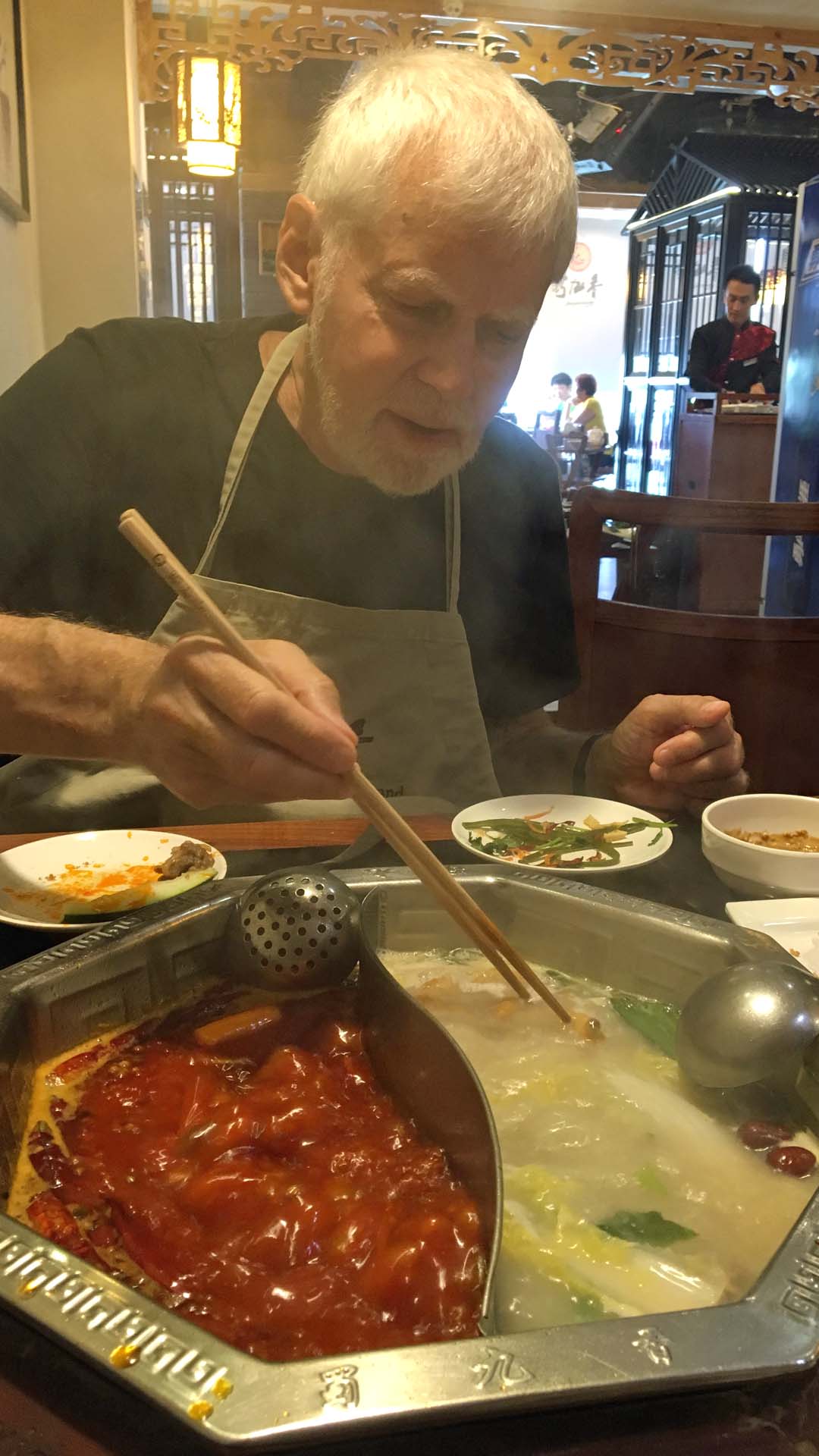
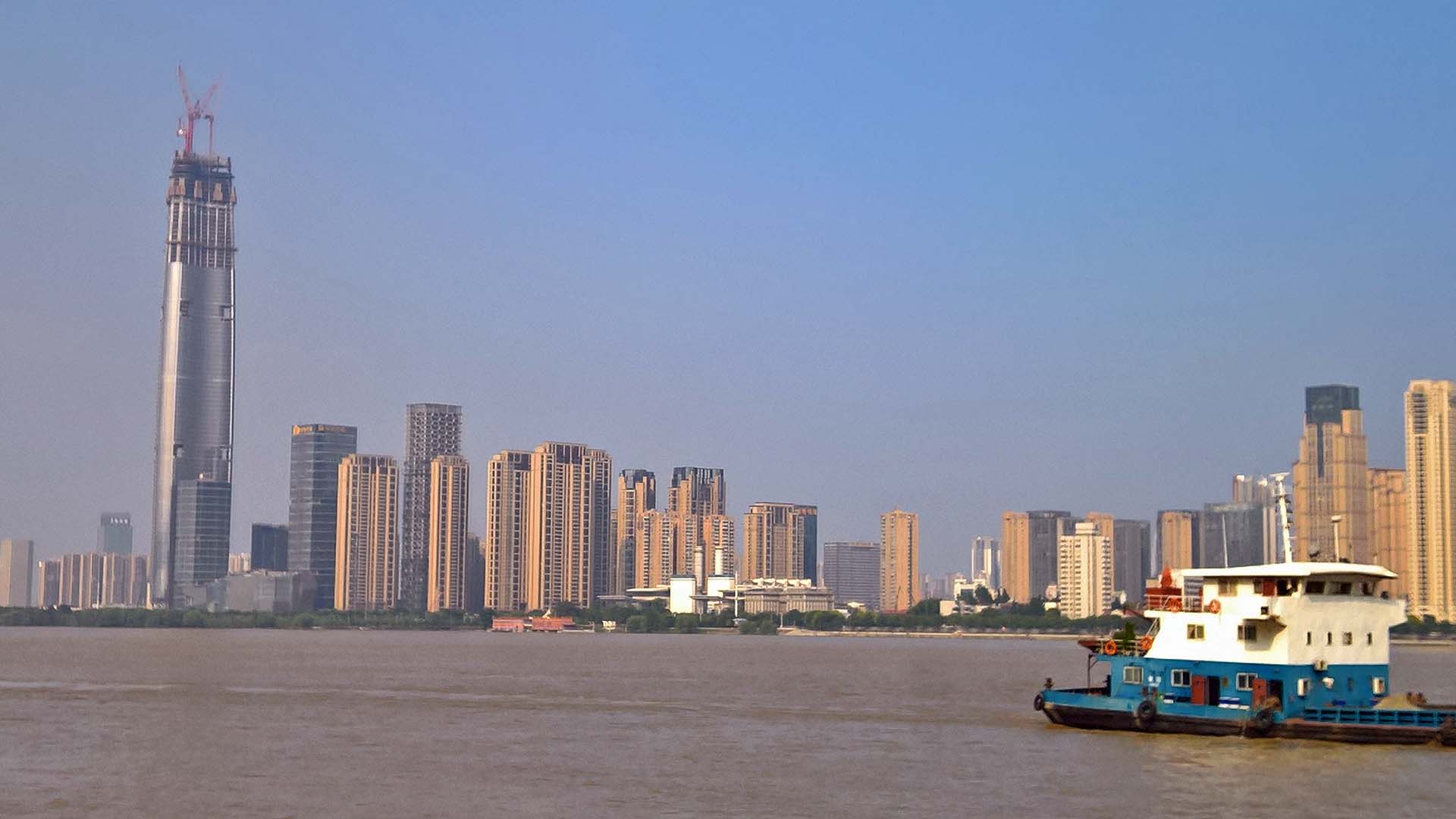
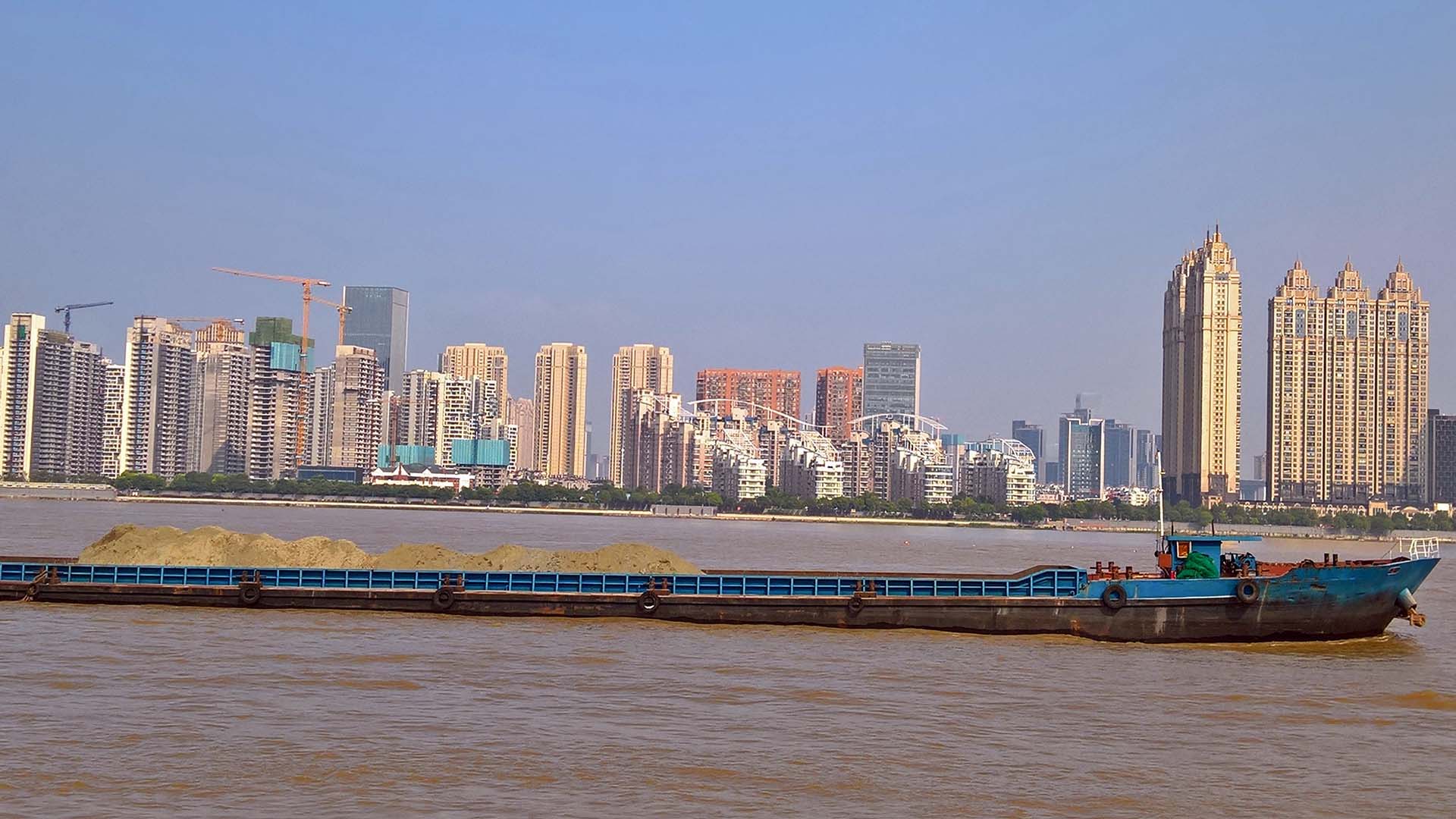






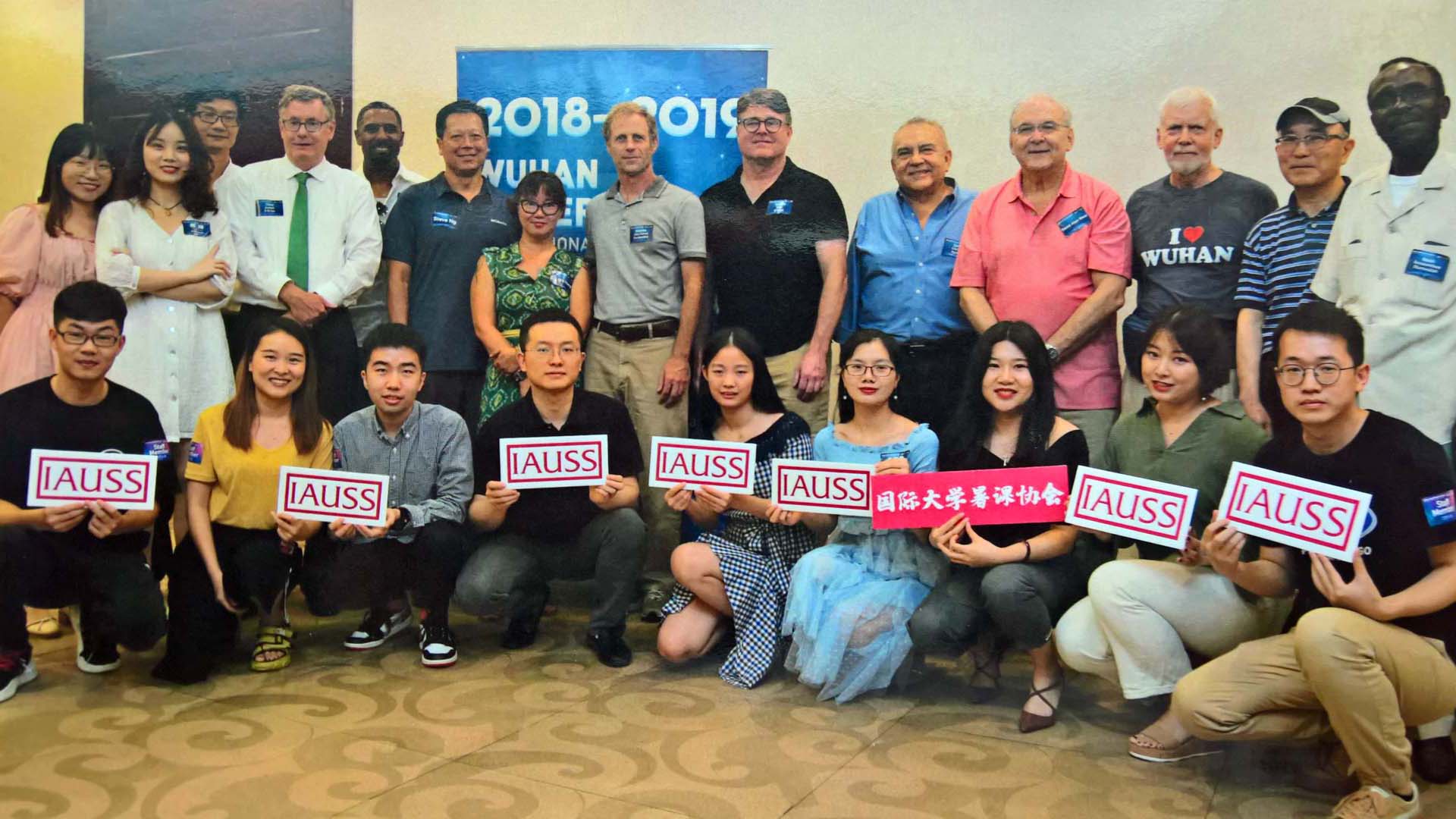
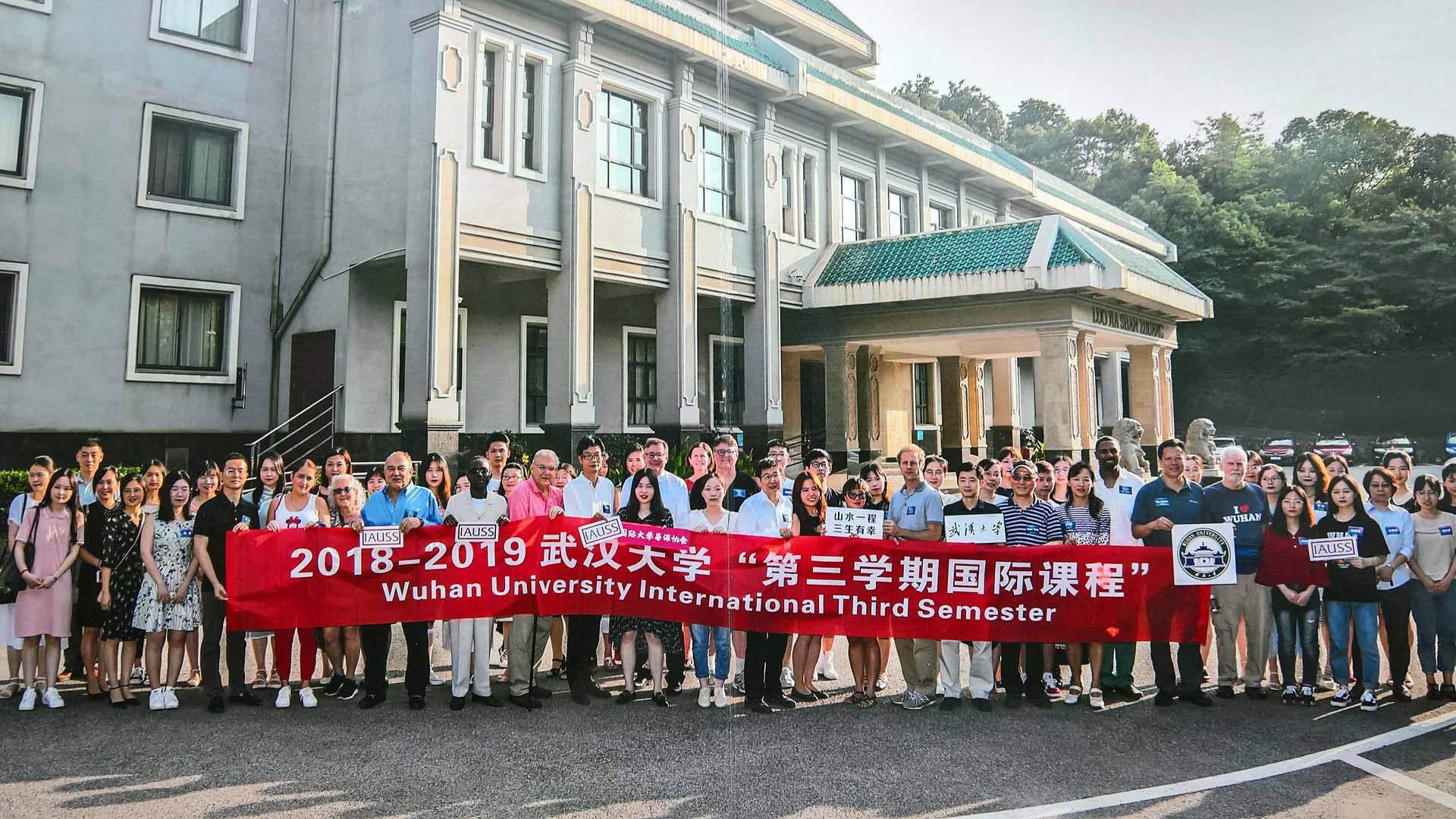

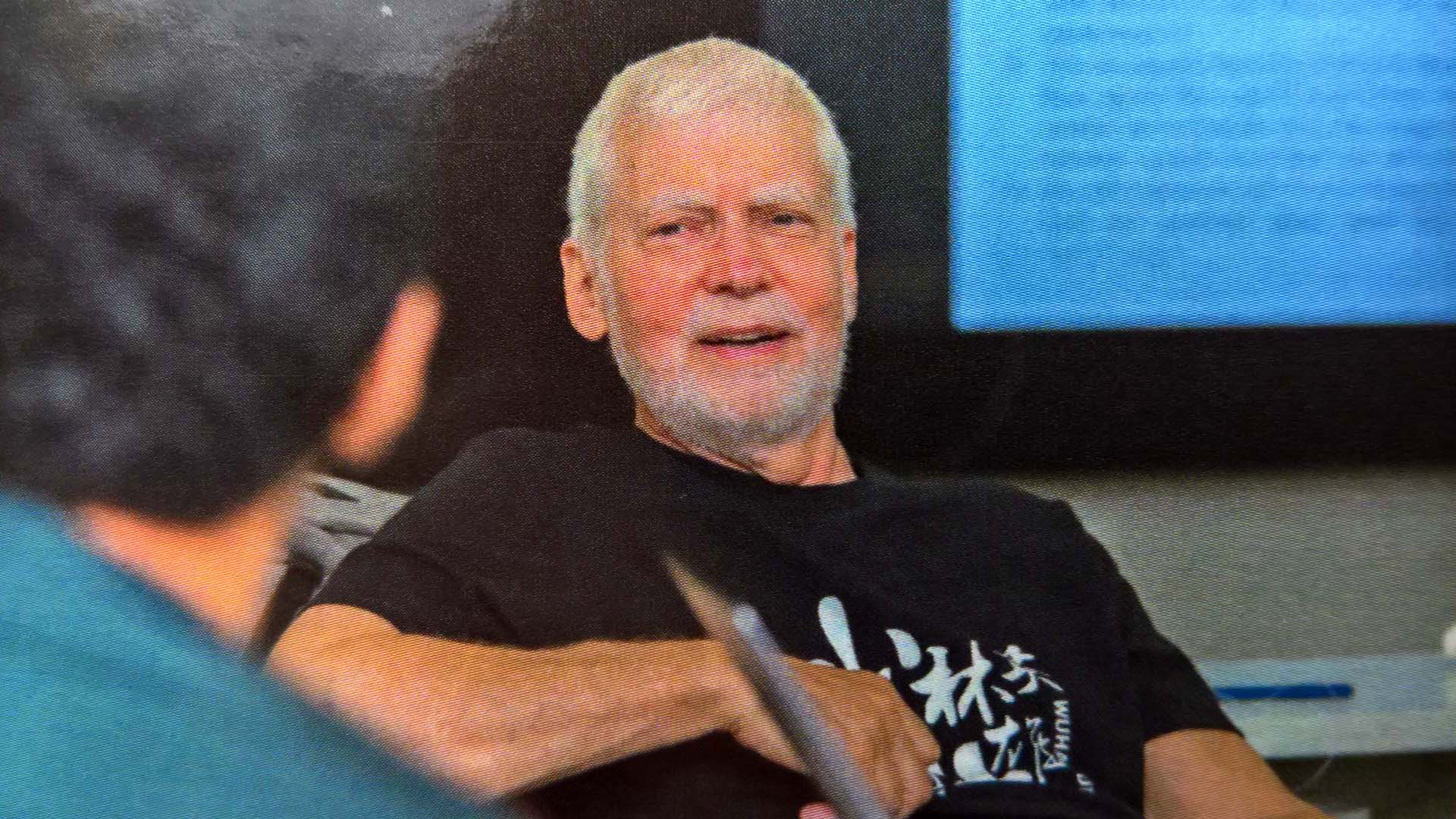
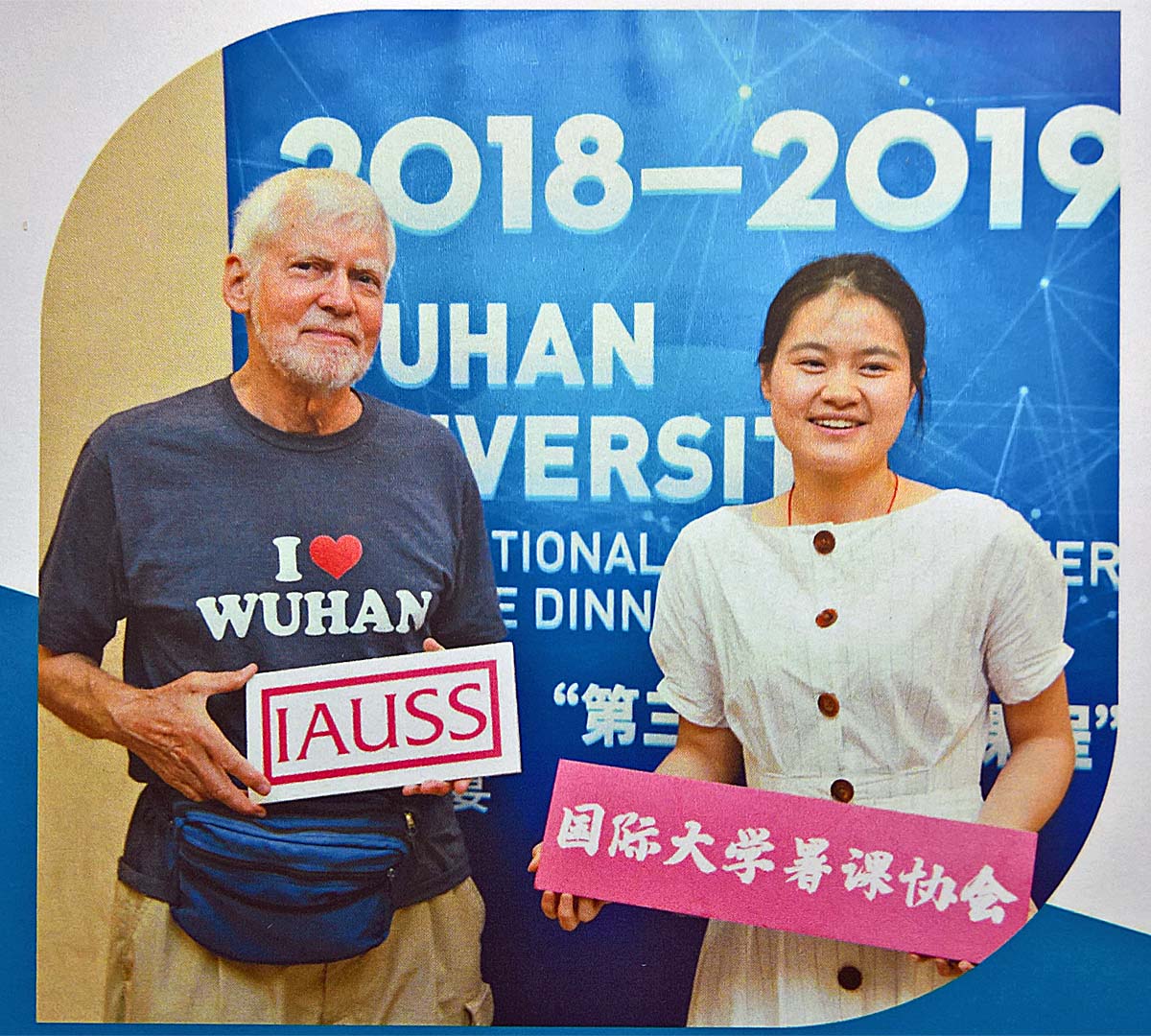
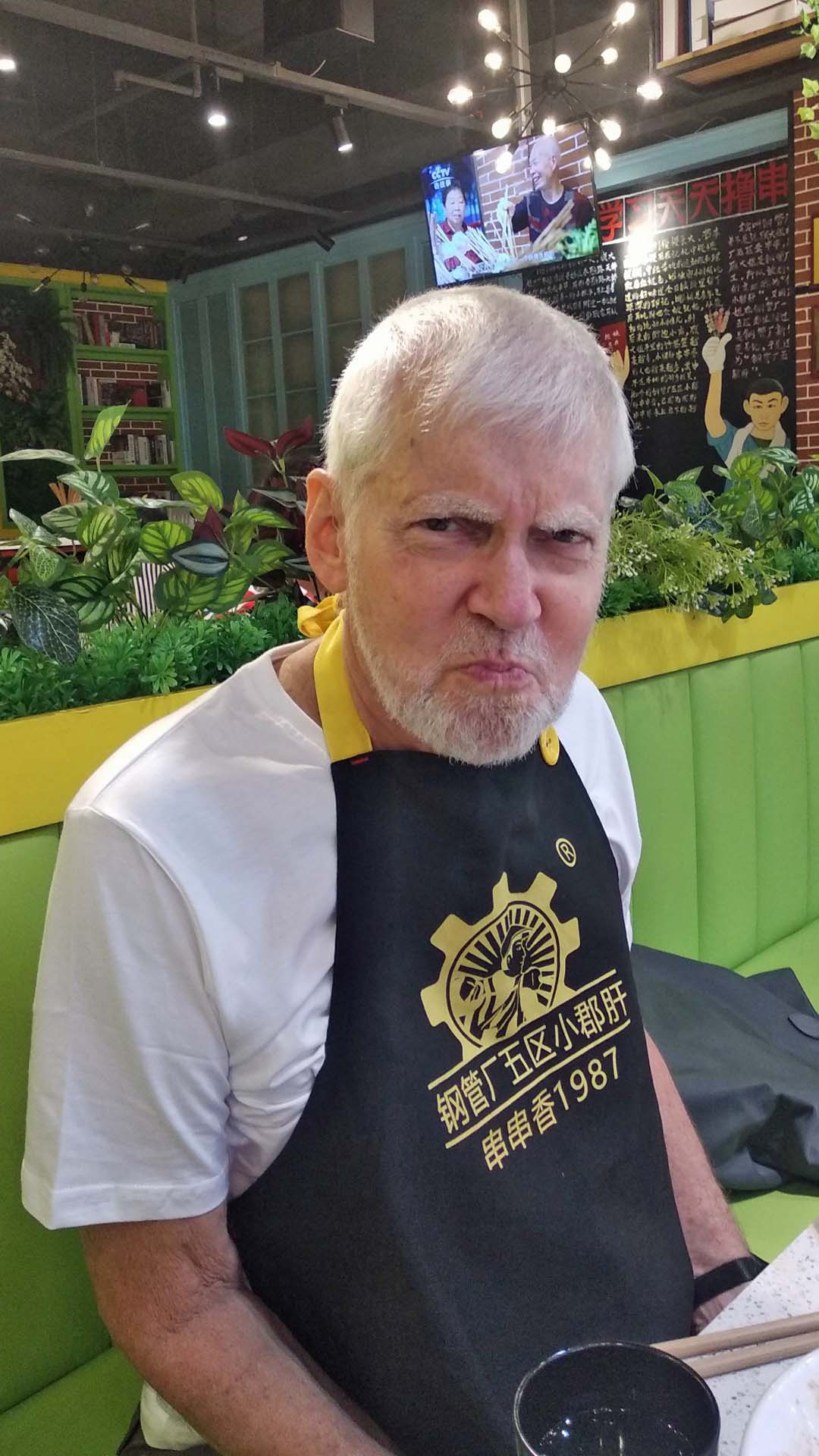

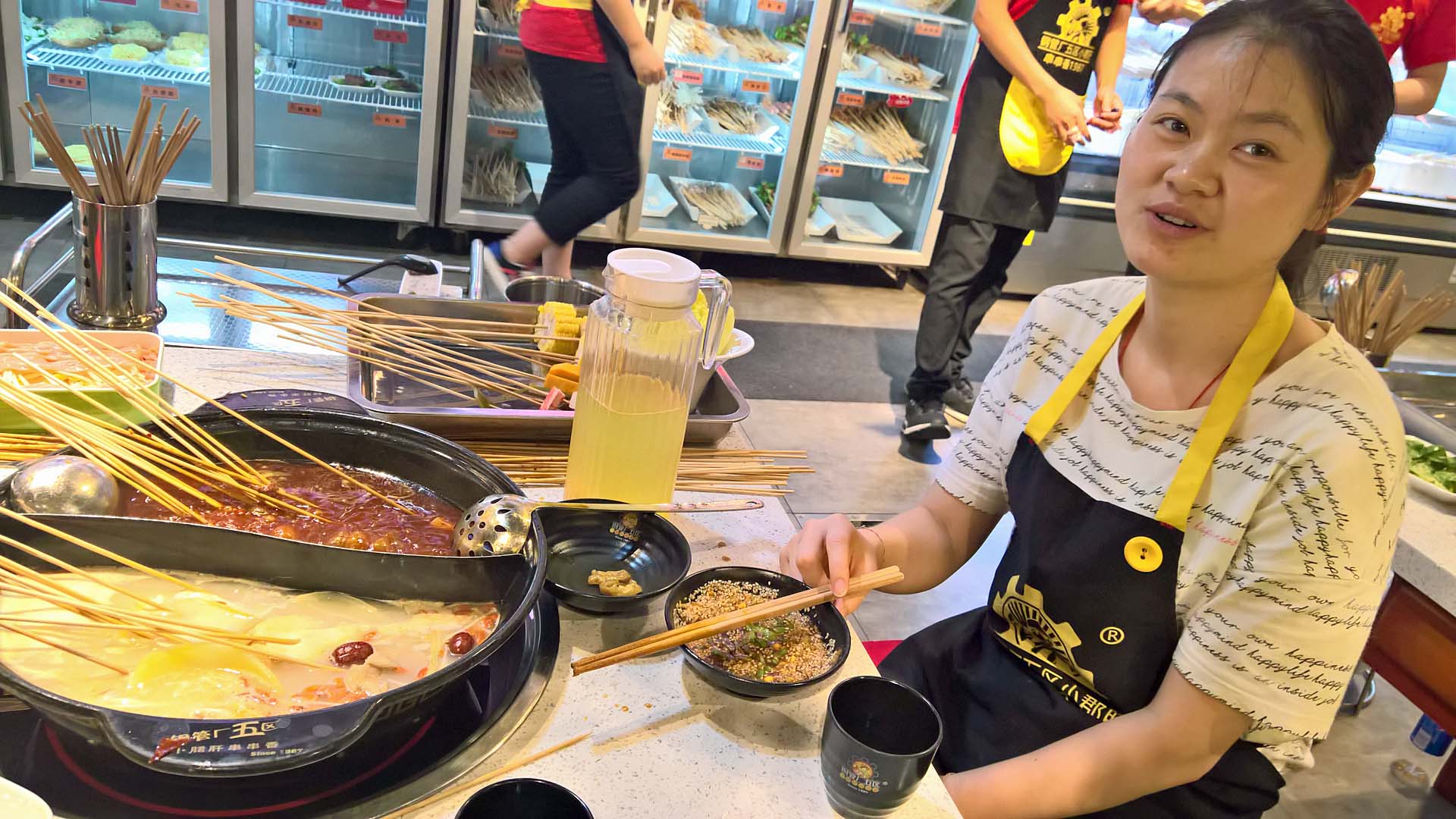
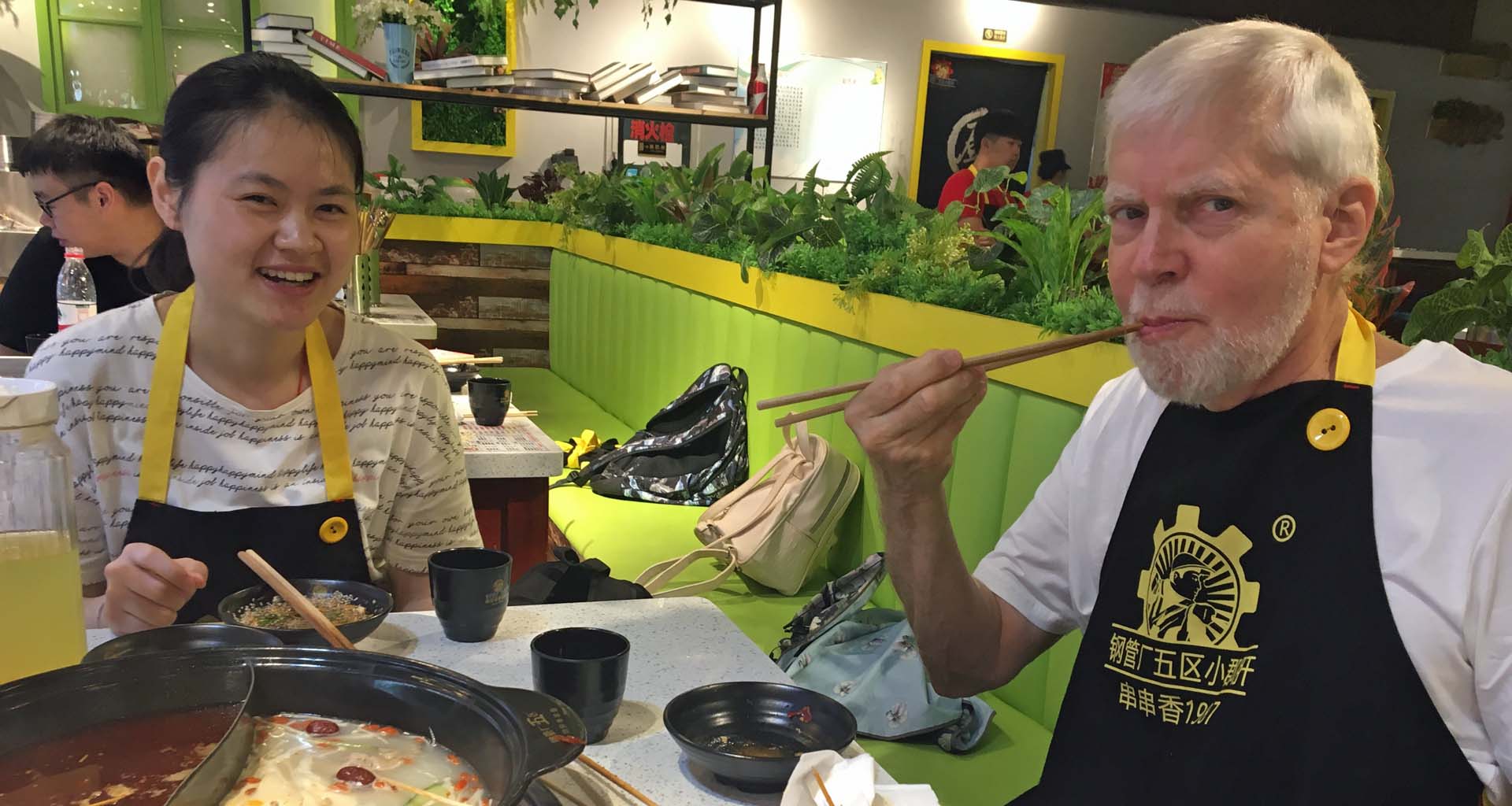
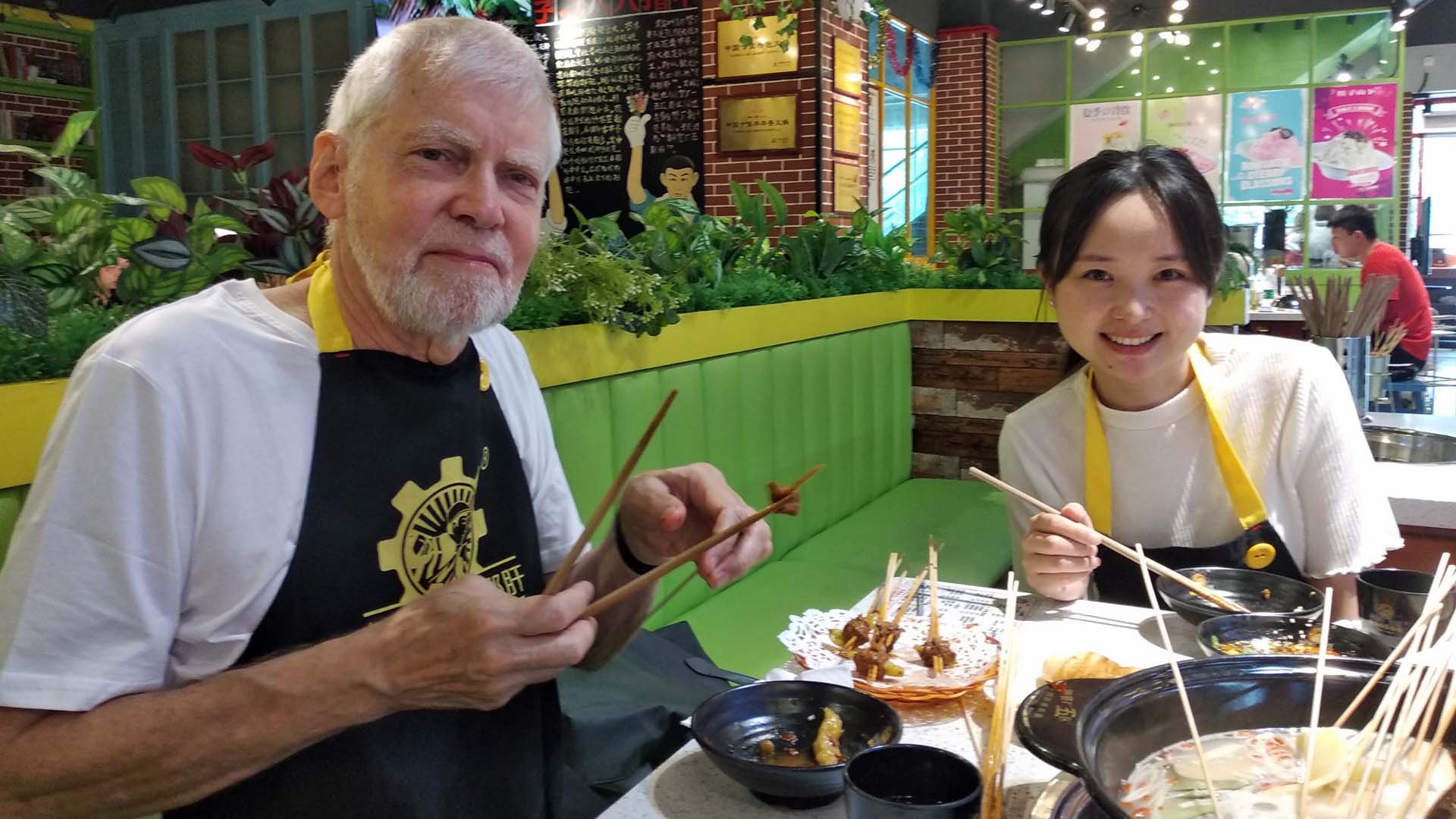
.jpg)
